A ‘shiva to an era’: Tree of Life congregants share memories of a bygone time





If you have been seeking ways to observe the High Holidays beyond traditional services, you’re in luck.

This year, familiar faces are trying new experiments, volunteer opportunities are plentiful and the prospects for reflection outdoors or with a song are bountiful.
Rabbi Aaron Bisno spent much of the last year establishing the Center for Interfaith Collaboration, focusing on the wisdom traditions that cross religions and cultures. He wants to extend the High Holiday experience to those without a congregation and to anyone interested in interfaith collaboration.
“Two Sacred Evenings” will take place on Erev Rosh Hashanah and Kol Nidre, Sept. 15 and 24 respectively, at the Pittsburgh Theological Seminary. Bisno has created a 90-minute service for each evening.
By Adam Reinherz | Senior Sta WriterJewish people primarily tell two types of stories. There’s the Passover kind, where a narrative is repeated with slight nuance; and there’s the shiva kind, where a hodgepodge of vignettes combat an absence to tell a larger tale. After identifying the distinction, Maggie Feinstein, director of the 10.27 Healing Partnership, invited Tree of Life congregants to share the latter — and for 90 minutes on Aug. 29, inside a densely packed classroom at Wightman School in Squirrel Hill, Jewish storytellers lauded a 158-year-old congregation whose history, and building, were marred by the Pittsburgh synagogue shooting.

On Oct. 27, 2018, a gunman entered the Tree of Life building and murdered Joyce Fienberg, Richard Gottfried, Rose Mallinger, Jerry Rabinowitz, Cecil Rosenthal, David Rosenthal, Bernice Simon, Sylvan Simon, Daniel Stein, Melvin Wax and Irving Younger. The 11 Jewish worshippers were members of the Dor Hadash, New Light and Tree of Life congregations.
Since that Saturday morning, Tree of Life Congregation has been displaced. An upcoming structural overhaul to the building on Wilkins and Shady avenues will convert its worship and educational spaces to a smaller sanctuary and adjacent museum. With almost five years having passed since congregants last used the building — they have been gathering in the meantime at Rodef Shalom Congregation — the storytelling event was a chance to share memories, laugh and mark bygone congregational life.
“This was my home, this was my second home,” Rachel Rosen said.

Her father, David Dinkin, was the congregation’s executive director, religious school principal and “sometime rabbi,” she said.

Dinkin’s roles at Tree of Life afforded Rosen countless hours inside the synagogue, but much of that time ended in trouble.
“I was bad,” she said.
As part of the first group of girls to become bat mitzvah at the Conservative congregation, Please see Tree of Life, page 14
“I want to provide something for the larger community,” the former senior rabbi of Rodef Shalom Congregation noted. “I think there’s a market for Jews and non-Jews and those with blended families to have a sort of ‘greatest hits’ experience.”

He likens “Two Sacred Evenings” to a report in The New York Times about longtime theatergoers opting not to purchase tickets to an entire season of Broadway shows but instead attending only the productions that speak to them.
The rabbi thinks the Jewish Federation of Greater Pittsburgh’s 2017 Community Study points to a future that looks different than today.
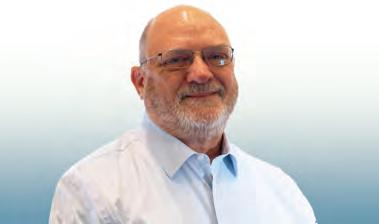
There are 47,000 Jewish community members in the region, Bisno noted, but according to the study, only 19% are members of brick-andmortar congregations. He thinks non-affiliated community members might be looking for an opportunity to experience the Jewish New Year.

“For people who want to have the High Holiday experience, it will be the best music we have in liturgy and a really high-quality sermon,” he said. “It’s for people who want the experience of the High Holidays but simply aren’t able or willing or interested to sit
Please see Holiday, page 14
ARodef Shalom Congregation gallery is cultivating the High Holiday spirit. Sixteen botanical drawings, all by local artists, are not only associated with the Days of Awe but feature fruits, vegetables, grains and trees that grow in Rodef Shalom’s Biblical Botanical Garden.


The exhibit is both educational and inspiring, according to Holly Dobkin, a lifelong member of the Shadyside congregation and co-president of the tri-state regional chapter of the American Society of Botanical Artists.
Beside one group of works is a card describing the four species of Sukkot: Viewers can learn both that the etrog is the “fruit of a citron tree (Citrus medica)” and that the etrog is “used as part of the blessings laid out in Leviticus (Vayikra) 23 for the holiday of Sukkot as ‘fruit of a beautiful tree.’”
Similar information is provided regarding the lulav (Phoenix dactylifera), hadass (Myrtus communis) and aravah (Salix babylonicus).
The images are unique, with artists having relied on various media, including pen, watercolor, graphite and colored pencil. Several images bear striking resemblance to their three-dimensional counterparts, and each plant depicted was thoroughly researched by the artists, Dobkin said.
The need for accuracy required learning about how, and where, each species grows and its different stages of life, she added.
Dasya Petranova, director of plantscapes at the garden, began working with Dobkin
and the other artists — most of whom are not Jewish — in November.
The generated works gave Petranova a newfound appreciation for many plants she already loved.
“The exhibit helps me see the care other people are taking when they look at the plants,” she said.
Along with learning about the intricacies of olives, wheat and other species, there’s another educational element to casting Rodef Shalom’s Biblical Garden in a new light, Dobkin explained.

“We should be aware of our environment and our dependence on plants and pollinators,” she said. The High Holidays are a time for people to not only reflect on themselves “as human beings but how we are stewards of this planet.”
According to the National Oceanic and Atmospheric Administration, “July 2023 was more likely than not the warmest month on record for the globe since 1850”; and
the “past nine Julys have been the warmest Julys on record.”
Even before the heat, there was extensive flooding, intense storms and wildfires this year.
The majority of Americans (62%) told Pew Research Center in 2109 that “climate change is affecting their local community either a great deal or some.”
This is a time for introspection and, with the High Holidays approaching, people should ask not only “how much they take for granted,” Dobkin said, but “how much we don’t think about our environment.” PJC
Adam Reinherz can be reached at areinherz@pittsburghjewishchronicle.org.
“Botanical Holiday Drawings” is on display in the Commons Area at Rodef Shalom Congregation through Oct. 8. Information about the exhibit and biblical gardens is available at 412-621-6566.
5915 Beacon St., 5th Floor Pittsburgh, PA 15217
Main phone number: 412-687-1000
Subscriptions: 412-687-1000, ext. 2
SUBSCRIPTIONS
subscriptions@pittsburghjewishchronicle.org
412-687-1000, ext. 2
TO ADVERTISE advertising@pittsburghjewishchronicle.org
412-687-1000
EDITORIAL DEPARTMENT
Email: newsdesk@pittsburghjewishchronicle.org
BOARD OF TRUSTEES
Evan H. Stein, Board Chair
Gayle R. Kraut, Secretary
Evan Indianer, Immediate Past Chair
Gail Childs, Dan Droz, Malke Steinfeld
Frank, Seth Glick, Tammy Hepps, Judith Kanal, Cátia Kossovsky, Charles Saul, Derek Smith
GENERAL COUNSEL
Stuart R. Kaplan, Esq.
Jim Busis, CEO and Publisher 412-228-4690 jbusis@pittsburghjewishchronicle.org
EDITORIAL
Toby Tabachnick, Editor 412-228-4577 ttabachnick@pittsburghjewishchronicle.org
Andy Gotlieb, Contributing Editor
Adam Reinherz, Senior Staff Writer 412-687-1000 areinherz@pittsburghjewishchronicle.org

David Rullo, Senior Staff Writer 412-687-1000 drullo@pittsburghjewishchronicle.org
ADVERTISING
Maureen Busis, Account Executive 412-736-3141 mbusis@pittsburghjewishchronicle.org
PRODUCTION
Jeni Mann Tough
Production Manager
Carl Weigel Art/Production Coordinator
Subscriptions subscriptions@pittsburghjewishchronicle.org
412-687-1000, ext. 2
Published every Friday by the Pittsburgh Jewish Publication and Education Foundation 5915 Beacon St., 5th Floor Pittsburgh, PA 15217
Phone: 412-687-1000
POSTMASTER:
Send address change to PITTSBURGH JEWISH CHRONICLE, 5915 BEACON ST., 5TH FLOOR PITTSBURGH, PA 15217 (PERIODICAL RATE POSTAGE PAID AT PITTSBURGH, PA AND AT ADDITIONAL MAILING OFFICES)

USPS 582-740
Manuscripts, letters, documents and photographs sent to the Pittsburgh Jewish Chronicle become the property of this publication, which is not responsible for the return or loss of such items.
The Pittsburgh Jewish Chronicle does not endorse the goods or services advertised or covered in its pages and makes no representation to the kashrut of food products and services in said advertising or articles. The publisher is not liable for damages if, for any reason whatsoever, he fails to publish an advertisement or for any error in an advertisement. Acceptance of advertisers and of ad copy is subject to the publisher’s approval. The Pittsburgh Jewish Chronicle is not responsible if ads violate applicable laws and the advertiser will indemnify, hold harmless and defend the Pittsburgh Jewish Chronicle from all claims made by governmental agencies and consumers for any reason based on ads appearing in the Pittsburgh Jewish Chronicle

As it moves into the future, the Jewish Community Center of Greater Pittsburgh is looking back for guidance — not just to the 128 years that preceded its Aug. 31 annual meeting but to three millennia of Jewish teachings.
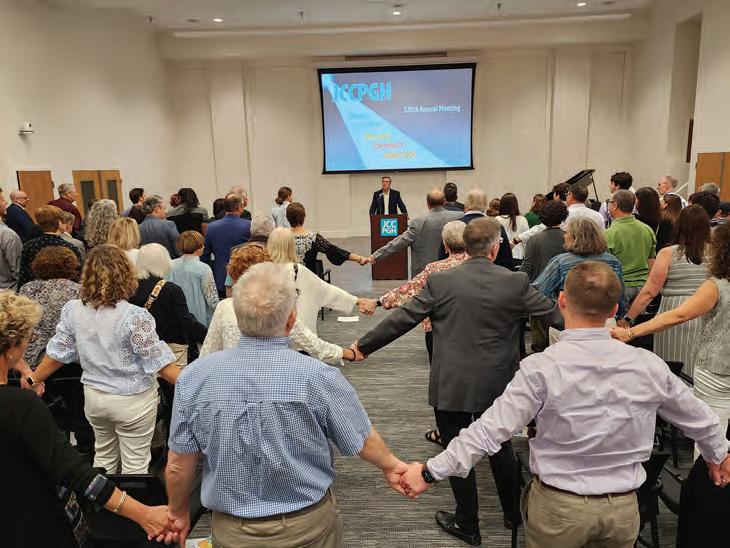
After installing its board and recog nizing 11 individuals for their guidance, kindness and volunteering, JCC leaders cited biblical verses, Talmudic insights and familiar liturgy when describing the orga nization, its communal presence and the transition between CEOs Brian Schreiber and Jason Kunzman.
The JCC, said Kunzman, its CEO as of Sept. 1, can be understood via the words of Parshat Mishpatim and the statement of the Israelites: “naaseh v’nishma (we will do and we will listen).”
A Talmudic debate elucidates the biblical passage: Whereas Rabbi Tarfon maintained that action is greater than study, Rabbi Akiva differed. The Talmud teaches, Kunzman said, that study is superior because “study brings one to action.”
“This balancing act, between thinking and doing, is exactly what makes the JCC of Greater Pittsburgh so unique,” he continued. “There are times when we run the data and build consensus to lead us to action. Then there are other times when we leap into action and see perspective at a later point.”
Schreiber, who headed the organization for nearly 25 years and is now its chief external affairs officer, said the JCC’s “secret sauce” can be discerned from its initials.
“‘J’ is our first name,” he said. “We’re an identified Jewish institution ... Our heritage, peoplehood, faith, tradition and enduring values guide where we have come from and where we are going.”
These ideas are driven by the words of Hillel, who when asked to recite the entire Torah while standing on one foot, answered, “That which is hateful to you, do not do to another. The rest is commen tary. Go learn,” Schreiber said. “To the same end, we are a community institution and we are centered.”
The initials provide an understanding of “today’s JCC,” which is evident not only in the entity’s history and current services but in its future, he said.
There’s a remark from Rabbi Tarfon in Pirkei Avot: “It is not your duty to finish the work. Neither are you at liberty to neglect it,” Schreiber said. Less known is the end of Rabbi Tarfon’s maxim, which reads, “The reward is in the age to come.”
Overseeing the JCC for 25 years is “long by Jewish communal and JCC standards,” Schreiber said. “But our JCC was up and running for 103 years before I accepted the job. Our job now is to continue to build for the next 103.”
That future, Kunzman said, is driven by a
deep understanding of self.
“There’s a reason why the word ‘Jewish’ is the first word in our name,” he said, adding that it’s “not just about what the organization has done, but perhaps even more importantly, what the organization can do.”
Board Chair Scott Seewald alluded to the future when telling nearly 200 attendees that the organization has both registered “record numbers of campers for the 2024 summer” and maxed out its Squirrel Hill and South Hills early childhood development centers for the coming school year.
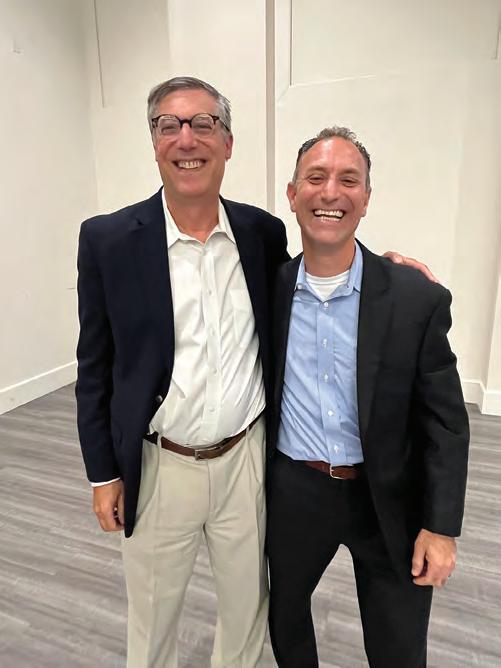
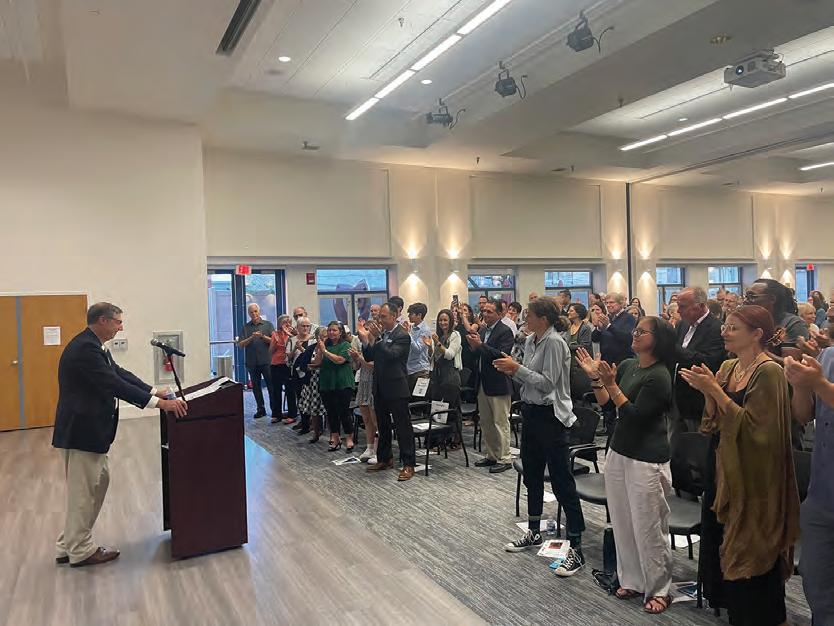
In March 2020, the JCC had 4,150 member units. By February 2021, a year into the pandemic, the number dipped to 2,005. Last month, the number of member units rose to 3,834, according to JCC officials.
Although the JCC can pride itself on returning to solid footing, the desire is to grow, develop and pioneer
municipalities, were identified as neurodiverse. We’re using innovative programming and partnerships to meet the needs of this important population.”
Likewise, the JCC is committed to initiatives and collaborations promoting public health and wellness, including community support groups, blood drives, volunteering and “combating isolation among older adults through congregant meals and a rich compendium of in-person and virtual learning opportunities,” he said.
Seewald pointed to the JCC’s symbiotic relationship between past and present, explaining that the organization not only adheres to a generational model of serving others, but its leaders follow suit.
“While Jason has learned much from Brian over the past few years, Brian has also learned from Jason,” he said.
To honor Schreiber as he begins a new
$2.3 million each year. A percentage of the money raised during the JCC’s Big Night, scheduled for March 9, 2024, will seed the new endowment.
For Schreiber, the surprise announcement and sentiments expressed by JCC leaders stem from “the deep Jewish roots of this agency,” he said. “Those teachings inspire us to return and create action.”
The past five years have also proven instructive, he continued.
“We feel emboldened and feel more inspired to lean into who we are at the JCC so that we can define ourselves before others define us,” he said. “Leaning into Jewish wisdom and Jewish teaching actually allowed us to deepen who we are as a Jewish institution, but at the same time recognize that many of the same values that allow us to be a light among the nations allow us to be a beacon in this community. These are not mutually exclusive; they’re not binary choices and you could actually be intentional about it.”
Before stepping aside as CEO, Schreiber took one more opportunity to kvell and give thanks.
“This is a joyous moment for me to know that the agency is in such amazing professional hands,” he said. “It’s something that we really aspire to as leaders.”
Looking out across Levinson Hall — a room filled with family, colleagues, staff and community members — Schreiber asked every attendee to clutch their neighbor’s hand. Four weeks ago, “in this very room,” the Shehecheyanu blessing was recited by the family members and survivors of the Pittsburgh synagogue shooting, he said. “We say the Shehecheyanu whenever we realize the miracle of the present moment. It honors and expresses the wonder and gratitude of having arrived at this special day.”
After reciting the blessing in Hebrew, 200 people answered “Amen.” PJC
Adam Reinherz can be reached at areinherz@pittsburghjewishchronicle.org.
Abigail Salisbury wasn’t even aware that American tourists visit Cuba before she began to research a trip to the island country just over 100 miles from Florida.
“For a long time, there were these requirements during the Obama administration, where if you were part of an educational program you could participate, but we didn’t know if you could still go,” Salisbury said. “We did some research and discovered that if you were engaged in activity that helps the Cuban people, you could go to the island.”
Under the Biden administration, “help” is broadly defined and can include assisting Cubans by shopping in their small businesses.
Salisbury is the state representative for Pennsylvania’s 34th House district and has had a longstanding interest in different forms of government. She’s also Jewish and was curious about the Cuban Jewish community.
Before the Cuban Revolution, the Caribbean nation was home to nearly 15,000 Jews, whose ancestors may have arrived in 1492 with Christoper Columbus’ second voyage to the Americas. What is certain is that the modern Jewish community began to arrive on the island by 1898 following the Spanish-American War. After the 1959 communist revolution, most Jews left the country.
Before the pandemic, Salisbury was told, about 2,000 Jews remained in Cuba, but that population, centered in Havana, was mostly elderly and shrank during COVID. Many immigrated to Israel or another country.
“As an elected official, I was very interested to experience what an actual socialist country was like,” she said. “I was also interested in the Jewish community in Havana.”
She and her husband, Andrew Horowitz, flew to Cuba last month and stayed for four days. Despite her position with the Pennsylvania House, Salisbury stressed she went on this trip as a private citizen.
Hebreo Sefaradi de Cuba] and Ashkenazi [Templo Beth Shalom] synagogues, which work in very close relationships,” she said.
Although she wasn’t there for Shabbat, she heard the Friday night services are large. Like many American congregations, though, daily minyans present a challenge.
“They have what they jokingly call the ‘Cuban Rule,’” she said. “Because they can’t always get 10 people, they count the Torah as a person.”
Congregations play a different role in Cuba than they do in the States. Salisbury said the shuls distribute aid to the community and even maintain a pharmacy because of the difficulty in obtaining medicine, over-the-counter drugs like Tylenol and basic first aid — something the couple learned firsthand.
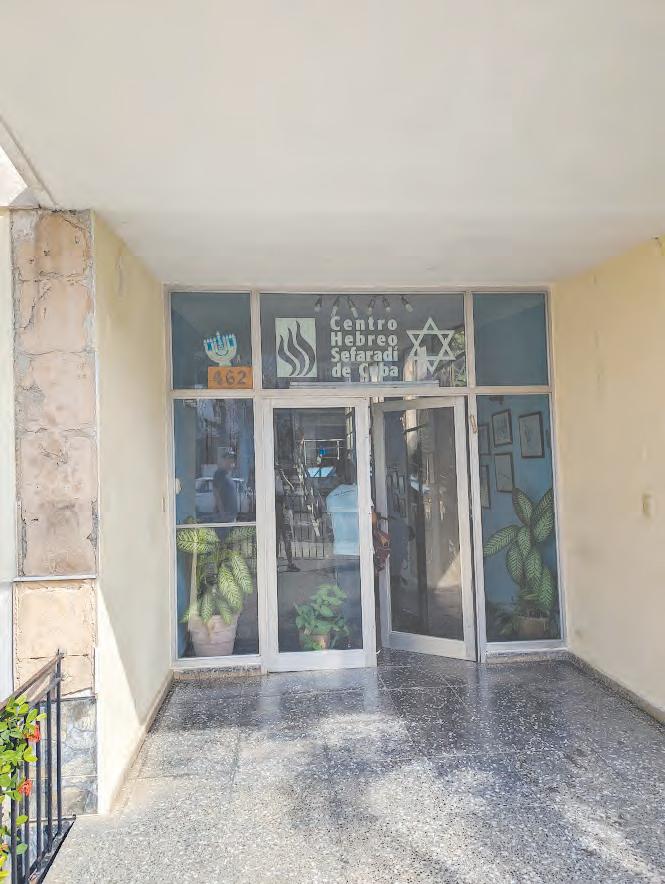
“My husband cut his finger while shaving,” Salisbury said. “In America, it’s not a big deal, you just grab a Band-Aid. In Cuba, there’s not
food packages.
While Salisbury and Horowitz were visiting the synagogues, care packages were being prepared and challah was being baked to be distributed on Shabbat.
And while Cuba was supposed to be an atheist regime after the revolution, Salisbury said there is a laissez-faire attitude toward religion, so the Jewish community there is not the target of a lot of hate.
“There are so few Jews that it’s not like people even think about, ‘Let’s go and be antisemitic,’” Salisbury said. “From what I hear, people just don’t really care that much. If people want to be Jewish, they can be Jewish.”
Cuba’s Jewish community doesn’t have a rabbi, she said. Instead, it’s lay-led by an older man who was there before the revolution and didn’t leave. He taught Hebrew to children and adults before COVID, but most of those people
emigrated since the pandemic.
The community’s senior center, which used to offer various programs, is now rented out to a contemporary dance troupe.
Rather than focusing on youth, as do many American congregations, Salisbury said Cuba’s congregations are particularly devoted to seniors because they comprise the largest segment of Jews.
“There’s a lot of focus on making sure everyone has enough to eat and medicine,” she said.
The American donations help, she noted, adding that the care packages prepared at the synagogues contained kosher food.
Jewish or not, Salisbury said, life in Cuba is bleak.
“What you get from the government can’t get you through,” she said. “Sometimes, I think we hear, ‘You get free food, free housing, free education, free all these things.’ You get certain things but it’s a very low level of supplies. It’s not like you live a middle-class lifestyle that’s all free.”
The economy, she said, is depressed. Tourism is the largest part of the economy, but it is confined to certain sections of the island. She said the businesses individual Cubans own are extremely small.
Salisbury stayed at a privately owned bedand-breakfast that was small and inexpensive.
“I think there were like four or five rooms — that’s the kind of thing Cubans are allowed to own,” she said.
Despite the hardships, Salisbury said that the Cuban Jewish community is tightknit. The trip, she said, provided an opportunity to see the community up close, something that can be difficult in some European countries.
“In Italy or Spain or France you have to prove you’re Jewish to get into the synagogues,” she said. “This is the first time I’ve traveled somewhere where I was able to actually see what was going on in the Jewish community. That’s one thing I thought was nice.” PJC
White supremacist Hardy Carroll Lloyd won’t see the outside of a prison cell anytime soon.
U.S. Magistrate Judge James P. Mazzone ordered Lloyd to be detained following his Aug. 29 indictment on charges related to the Pittsburgh synagogue shooter’s trial.
Formerly of Dormont, Lloyd has been living in Follansbee, West Virginia. He was arrested on Aug. 10 after the FBI filed a complaint against him in the Northern District of West Virginia. He was indicted on charges of obstruction of the due administration of justice, transmitting threats in interstate and foreign commerce and witness tampering.
Lloyd made threatening social media posts, website comments and emails toward the jury and witnesses during the trial, according to court documents.
He is also accused of placing, or having others place, stickers and flyers in predominantly Jewish areas of Pittsburgh, directing people to a white supremacist website he runs, containing threats and antisemitic messages.
Lloyd’s trial is scheduled to begin on Oct. 31 before U.S. District Judge John Preston Bailey. He faces up to 10 years in prison for the obstruction charge, up to five years for the threats charge and up to 20 years for the tampering charge.
This is the latest chapter in a long line of arrests for Lloyd.
First charged in 2004 with killing his girlfriend in Squirrel Hill, Lloyd was acquitted of the murder but found guilty of illegal firearm possession. He was sentenced to 30 months in prison, followed by three years of supervised release.
After his release, Lloyd bragged online about the murder of his girlfriend and taunted her family with violent lyrics to songs he penned about her death.
In 2017, he was sentenced to 13 months in prison and nine months of supervised release for using public computers at libraries in Mt. Lebanon and Dormont to order martial arts weapons and to watch videos of women being abused. He was also recorded giving the Nazi salute at a Mt. Lebanon protest and distributing flyers in the city’s East End.
On Oct. 6, 2020, Lloyd was released from prison after serving 24 months for violating his probation, which prohibited him from accessing social media or communicating with anyone to promote terrorism. He relocated to Austin, Texas.
In 2022, the Texas Department of Public Safety offered a $1,000 reward for information leading to Lloyd’s arrest after he posted a series of threatening comments online promising to carry a firearm onto the Texas State Capitol grounds.
Shawn Brokos, the Jewish Federation of Greater Pittsburgh’s community security director, said she was grateful to the entire
Pittsburgh community and law enforcement for their help in providing information leading to Lloyd’s arrest.
“Federation is grateful to our law enforcement community, as well as all of our community members who had a role in bringing Lloyd to justice,” Brokos said. “Today is a great day for justice, and it is reassurance that he is now behind bars and no longer poses a threat to our Jewish Pittsburgh organizations or individuals or the Pittsburgh community, in general.”
She urged anyone who sees anything suspicious to report it to law enforcement and the Jewish Federation of Greater Pittsburgh. PJC
David Rullo can be reached at drullo@ pittsburghjewishchronicle.org.
This story is part of ongoing coverage of the Pittsburgh synagogue shooting trial and its aftermath by the Pittsburgh Jewish Chronicle and the Pittsburgh Union Progress.
In the last year, 41% of LGBTQ young people have seriously considered suicide and 67% experienced symptoms of anxiety. The percentage is higher for those who are transgender or nonbinary.
Those findings are part of a 2023 national survey on the mental health of LGBTQ young people, aged 13-24, conducted by the Trevor Project, an organization whose mission is to end suicide among LGBTQ young people.
The numbers in the Trevor Project’s study grabbed the attention of organizations working with teens. When a teen engagement survey conducted by the Jewish Federation of Greater Pittsburgh, in conjunction with Rosov Consulting, found mental, emotional, social and spiritual health were top concerns for Jewish teens, Federation leaders decided they had to act.

In 2022, the Federation embarked on a one-year grant with Moving Traditions, an organization focused on youth programs at the intersection of gender, well-being and Judaism, according to Carolyn Linder, the Federation’s associate director of Jewish life and learning.
Through their work with Moving Traditions, Federation leaders learned of Tzelem, Moving Traditions’ monthly teen group for nonbinary, trans, gender-expansive and LGBTQ+ teens.
They are bringing the group to Pittsburgh.
According to Tzelem’s website, its name comes from “B’Tzelem Elohim,” meaning that each person is created in the image of God.
Federation is partnering with the JCC Second Floor, Repair the World, UpStreet Pittsburgh and others for the new program, Linder explained.
“The Tzelem group,” she said, “will be a safe, sacred space for nonbinary, trans, gender-expansive and LGBTQ+ teens to explore and celebrate the various ways that Judaism honors expansive understandings of gender.”
The group will focus on topics such as healthy relationships, stress, belonging and identity, according to the Federation’s website, and will include opportunities to meet other teens and Jewish adult mentors to discuss issues around transition and gender expression. Em Duhamel will serve as the group leader.
— LOCAL —
The Jewish Cemetery & Burial Association of Greater Pittsburgh has hired Jennifer Primack as its operations manager. Primack replaces Operations Manager Kelly Schwimer, who will become the organization’s executive director when Barry Rudel retires in December.
“Jennifer brings her career experience in project management, fundraising, troubleshooting, and problem-solving, as well as her dedication to the Greater Pittsburgh Jewish community,” Harvey Wolsh, JCBA’s board president, said in a prepared statement. “We look forward to her overseeing and enhancing the day-to-day operations of the JCBA.”
Primack holds degrees from Penn State University and Indiana University of Pennsylvania, and comes to the JCBA with a background in program management and
development. She has served in a volunteer capacity at Dor Hadash Religious School, the Jewish Federation Greater Pittsburgh and at 8:Fifteen, an organization assisting young adults who have aged out of the foster care system. PJC
— Toby Tabachnick
Duhamel was involved with Moving Traditions as a mentor in its Kol Koleinu Teen Feminist Fellowship program while in college in Cincinnati, and, as a fellow with Repair the World, worked with teenagers and high schoolers.
Duhamel said that teens will often have opportunities in religious school and youth groups to explore their Jewish identities. That can prove more challenging for LGBTQ, transgender and nonbinary teens.

“It’s hard to figure out how we might fit into Judaism, what our role might look like, how it influences what it’s like to be just a
transgender high schooler,” Duhamel said. “This is an opportunity for them to explore that through different discussions, different chances to meet different people in the community who are trans and Jewish and navigating that identity.”
Duhamel said the teen years are scary enough to navigate, and when identity issues are added on top of that, it can feel overwhelming and isolating.
“Growing up, I didn’t know many nonbinary Jewish adults and didn’t really see myself represented among the people I knew,” Duhamel said. “I’m really excited Tzelem is happening now. I can just imagine that if I had something like this in high school, I would have felt a little bit less alone while I was trying to navigate some of these questions.”
Federation Chair Jan Levinson said teens of all genders need spaces to connect with peers and adult mentors and to be seen and accepted for who they are.
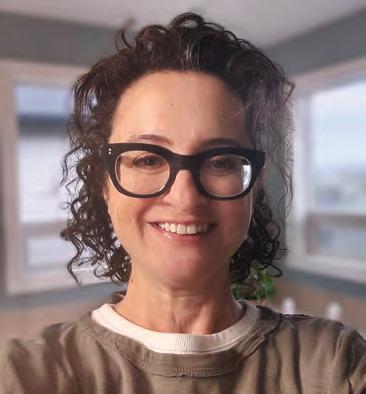
“We are proud to be partnering with Moving Traditions, an organization that runs health and well-being programs for Jewish teens and young adults, and with so many of our local Jewish youth-serving organizations to launch our community’s first Tzelem teen group,” he said. “It is important for young LGBTQ+ Jews to have a space where they can openly embrace both their religious and gender identity.”
An information session for parents and teens be held on Oct. 4 at 8 p.m. on Zoom. Subsequent meetings will be in person at the Squirrel Hill JCC’s Second Floor and UpStreet.
Those interested in registering for Tzelem or learning more about the program can visit jewishpgh.org/event/pittsburgh-tzeleminformation-session. PJC
David Rullo can be reached at drullo@ pittsburghjewishchronicle.org.

“It is important for young LGBTQ+ Jews to have a space where they can openly embrace both their religious and gender identity.”
– JAN LEVINSONp Jennifer Primack Photo courtesy of Jennifer Primack
Submit calendar items on the Chronicle’s website, pittsburghjewishchronicle.org. Submissions also will be included in print. Events will run in the print edition beginning one month prior to the date as space allows. The deadline for submissions is Friday, noon.
q SATURDAY, SEPT. 9
Join Congregation Beth Shalom for a community Selihot as it honors and thanks all who have made Life and Legacy commitments. 6:30 p.m. 5915 Beacon St. bethshalompgh.org.
q SUNDAY, SEPT. 10
Join Chabad of Greenfield for a Pre-Rosh Hashanah Bash. 11 a.m. $7 per child. 4315 Murray Ave. chabadofgreenfield.com/highholidays.
Take part in Chabad of Squirrel Hill’s Women’s Mini Retreat, a pre-High Holiday program of inspiration, connection and rejuvenation. 11 a.m. $54. 1700 Beechwood Blvd. chabadpgh.com.
q SUNDAYS, SEPT. 10 – DEC. 3
Join Chabad of Squirrel Hill for its Men’s Tefillin Club Enjoy bagels, lox and tefillin on the first Sunday of the month. 8:30 a.m. chabadpgh.com.
q SUNDAYS, SEPT. 10 – DEC. 17
Join a lay-led online parshah study group to discuss the week’s Torah portion. No Hebrew knowledge needed. The goal is to build community while deepening understanding of the text. 8:30 p.m. For more information, visit bethshalompgh.org.
q MONDAY, SEPT. 11
Join Chabad of the South Hills for New Beginnings: Ladies Night Out. Guest speaker Devorah Rubin will talk about seeing G-d’s blessings while navigating an unexpected medical challenge. Enjoy a delicious buffet of Rosh Hashanah salads and side dishes. 7:30 p.m. $18. chabadsh.com/ladies.
q MONDAYS, SEPT. 11 – DEC. 18
Join Congregation Beth Shalom for a weekly Talmud study. 9:15 a.m. For more information, visit bethshalompgh.org.
q WEDNESDAYS, SEPT. 13– DEC. 20
Join AgeWell for an intergenerational family dynamics discussion group, led by intergenerational specialist/ presenter and educator Audree Schall. Third Wednesday of each month. Free. 12:30 p.m. South Hills JCC.
q WEDNESDAYS, SEPT. 13 – DEC. 27 Bring the parashah alive and make it personally relevant and meaningful with Rabbi Mark Goodman in this weekly Parashah Discussion: Life & Text. 12:15 p.m. For more information, visit bethshalompgh.org/life-text.
Temple Sinai’s Rabbi Daniel Fellman presents a weekly Parshat/Torah portion class on site and online. Call 412-421-9715 for more information and the Zoom link.
q WEDNESDAY, SEPT. 13
Join Chabad of the South Hills for its pre-High Holiday seniors’ lunch. Learn home safety tips from Comfort Keepers while enjoying lunch and honey cake. Wheelchair accessible. Pre-registration strongly suggested. 1 p.m. $5 suggested donation. 1701 McFarland Road. chabadsh.com.
Enjoy an hour of nourishment for the mind, body, and soul as Chabad of Squirrel Hill explores words of wisdom for the month of Tishrei at a Ladies’ Lunch and Learn 1 p.m. $18. 1700 Beechwood Blvd. chabadpgh.com.

Join Chabad of Squirrel Hill on Zoom for a Rosh Chodesh gathering and to hear words of wisdom for the month of Tishrei. 7:30 p.m. chabadpgh.com.
q FRIDAY, SEPT. 15
Chabad of Greenfield presents a Rosh Hashanah dinner. 7 pm. $25/adult; $18-/child; $100/family, max. Shadtreez Event Space. ChabadofGreenfield.com/ highholidays.

q FRIDAY, SEPT. 15, SUNDAY, SEPT. 24
Join The Center for Interfaith Collaboration for Two Sacred Evenings — a High Holy Days experience. Celebrate the richness of Judaism’s entry into the New Year 5784 with Erev Rosh Hashanah and Yom Kippur/Kol Nidre services. 7:30 p.m. $100. Hicks Memorial Chapel, Pittsburgh Theological Seminary, 616 N. Highland Ave. C4IC.org.
q MONDAY, SEPT. 18
Join the Holocaust Center of Pittsburgh First Person and Generations Speakers Series: A Talk by Holocaust survivor Oscar Singer with his daughter Lee Fischbach. 6 p.m. Free. hcofpgh.org/events.
q WEDNESDAYS, SEPT. 20
The Squirrel Hill AARP welcomes all seniors to its first meeting of the school year and hear speaker Michael H. Marks, principal attorney at Marks Elder Law. He will explain what elder law is, estate planning and administration and asset protection planning for longterm care. 1 p.m. Rodef Shalom Synagogue, Falk Library 4905 Fifth Ave. Call Marcia Kramer at 412-656-583 with any questions.
q WEDNESDAYS, SEPT. 20-MAY 15
The Jewish Federation of Greater Pittsburgh virtually presents two Melton courses back-to- back: “Ethics” and “Crossroads.” In “Ethics,” learn how Jewish teachings shed light on Jewish issues. “Crossroads” will present an emphasis on reclaiming the richness of Jewish history. 7 p.m. $300 for this 25-session series (book included). jewishpgh.org/series/meltonethics-crossroads.
q THURSDAY, SEPT. 21
New(ish) to Pittsburgh and looking to connect with the Jewish community? Join the Jewish Federation of Greater Pittsburgh’s Young Adult Division for YAD New(ish) & Jew(ish) Happy Hour. Come and connect with fellow newcomers, alongside the YAD Council, in a laid-back and informal setting. This is your chance to socialize and inquire about YAD and the Pittsburgh Jewish community in a comfortable atmosphere.
6 p.m. Lolev Beer, 5247 Butler St. jewishpgh.org/event/newish-and-jewish.
q WEDNESDAY, SEPT. 27
The Holocaust Center of Pittsburgh welcomes back to Pittsburgh Tony McAleer, the subject of the documentary “The Cure for Hate” and a reformed white nationalist, for an enlightening conversation on how conspiracy theories begin, take root and how we can stop them. 6 p.m. Free. Chatham University. Woodland Road. hcofpgh.org/events.
q MONDAY, OCT. 2
Join Chabad of Squirrel Hill in the sukkah to shake the lulov, eat pizza and enjoy music and crafts. 5 p.m. 1700 Beechwood Blvd. chabadpgh.com
q WEDNESDAY, OCT. 4
The Jewish Federation of Greater Pittsburgh’s new Tzelem Teen Group is a safe, inclusive space for nonbinary, trans, gender-expansive and LGBTQ+ teens. It will focus on topics such as healthy relationships, stress, belonging and identity; sessions also include opportunities to meet other teens and Jewish adult mentors and to discuss issues around transition and gender expression. Teens will meet monthly, with the Pittsburgh Tzelem group leader to explore the issues through games, art, discussion and by drawing on Jewish teachings. Learn more at a virtual information session for teens and their parents. 8 p.m. jewishpgh. org/event/pittsburgh-tzelem-information-session. PJC
Our readers are invited to submit poems to the Chronicle’s Poetry Contest. Winning entries will be published in our Oct. 6 issue. The theme is “harvest.”
Three winners will each receive a $54 gift card to Pinsker’s Books and Judaica, supplied by an anonymous donor. All submissions must be received no later than Sept. 22.
Guidelines:
Poems must be submitted to newsdesk@ pittsburghjewishchronicle.org. Please type “Poetry Contest” in the subject line. The poem must be in a Microsoft Word file. No PDFs or handwritten entries will be accepted.
• One submission per author.
• Must include the author’s name, address, phone number and email address.
• Poem should reflect the theme of harvest.
• Unpublished poems only. PJC
Chabad Lubavitch of Western Pennsylvania congratulates Marlene Silverman
on her well-deserved receipt of the 2023 Emanuel Spector Memorial Award. We are blessed by her many years of dedication to our community.
soldier — Reinhard Wiener — and that footage, shot on a personal camera, was discovered after World War II.
By Justin Vellucci | Special to the ChroniclePhilip Reeder always loved history, geology and maps. So, the Baltimore native, now a Duquesne University professor, got his doctorate in geography and started an academic career researching water resources and soil.
Then, at the University of Nebraska at Omaha, Reeder met Richard Freund, a fellow professor. Freund, a much-acclaimed Jewish scholar, biblical archaeologist and rabbi, invited Reeder in 1999 to join his team in Israel on a technology-informed archaeological mission.

It changed everything.
Reeder and Freund continued collaborating for a generation with electrical resistivity tomography (ERT) and ground penetrating radar (GPR), which uses FM radio waves to help researchers “see” beneath land or the surface of a building without digging.
The technology was first developed to serve people scouting locations in the oil and gas industry, Reeder said.
This summer, Reeder traveled to the Baltics to find the unmarked graves of dozens of Jews murdered by Nazis in July 1941 in the Latvian city of Liepaja.
The influence of Freund, who died at age
67 on July 14, 2022, lingered in Latvia. Reeder is not Jewish, but he found his faith to be an important part of the project.
“The approach I take to this research … is that we do it because of our faith and we do it because we are scientists, as well,” Reeder said. “The world needs to know — and there’s still so much more out there that’s undiscovered.”
“For the good of the historic record, for the good of humanity,” he added, “information about these horrible things needs to be brought into the public light as much as possible.”
The Liepaja graves were sought for decades. The execution of about 25 Jewish men was one of many; the Nazi regime reportedly executed thousands of Jews in Latvia in 1941.
But, one thing was different there: The massacre at Liepaja was filmed by a German
“It is my understanding that it is the only film of Jews being murdered as part of the Holocaust,” Reeder told the Chronicle. “We have still photos. But, that’s the only film.”
The film shows the Jewish men being driven by trucks to dunes near the coast of the Baltic Sea, Reeder said. The Nazis dug a trench. The men then entered the trench and were shot five or six at a time. Spectators watched.
Today, the site where Reeder’s team found the mass grave — more specifically, a trenchsized hole in the soil that was dug and then refilled — is an industrial park, Reeder said. The land is covered in asphalt; nearby, a company runs a fish processing operation.
A memorial commemorating the site is in the works by Latvian officials, Reeder said.
Reeder first worked in Liepaja in 2022.
“A lot of times … it’s years and years before we feel confident we’ve found something,” Reeder said. “But we were pretty certain after last year that we found what we were looking for.”
Reeder went to Latvia last year without Freund, who was in the final stages of cancer. Instead, Reeder relayed messages and updates daily via phone calls to Freund’s wife, Eliane.
“We wouldn’t be doing this cutting-edge, world-class research that’s changing the way people look at the Holocaust without him,” Reeder said.
This year, for six days, Reeder also worked in the Latvian town of Skede, where it’s believed Nazis executed about 2,800 women and children, leaving them in another mass grave near the Baltic Sea’s coastline.
The truth, Reeder said, is again beneath the soil.
“We (worked to) make a determination whether there was a possibility that the mass grave had been washed out to sea,” he said. “We think it’s still there.”
After working at several biblical sites in Israel 24 years ago, word spread fast of Freund’s and Reeder’s work. They went to work in Poland, then Greece, then Spain. In 2015, they trekked to Lithuania, introducing their work to the Baltics.
Reeder also migrated on this side of the Atlantic. He came to Pittsburgh in 2013 after working as the director of environmental science and policy at the University of South Florida in Tampa. He served as the dean of Duquesne University’s Bayer School of Natural and Environmental Sciences from July 2013 to June 2021.
Today, Reeder teaches — and continues his research.
“Essentially,” he said, “what we do is we use science to write and rewrite the history of the Holocaust.” PJC

(345 Kane Blvd, Pittsburgh, PA 15243)
2-3 pm
AgeWell at the Jewish Community Center in the South Hills is facilitating a community feedback session with the Pittsburgh Digital Equity Coalition about Allegheny County's drafted Equity Plan. This session is to gather feedback and insights from community members to shape the Pittsburgh digital equity plan.
The goal is to better understand the needs and challenges of residents and to develop a plan that will ensure equitable access to technology and digital resources for all members of our community.
To RSVP for this event, contact Maddie Barnes mbarnes@jccpgh.org or 412-697-1186.
at the JCC South Hills


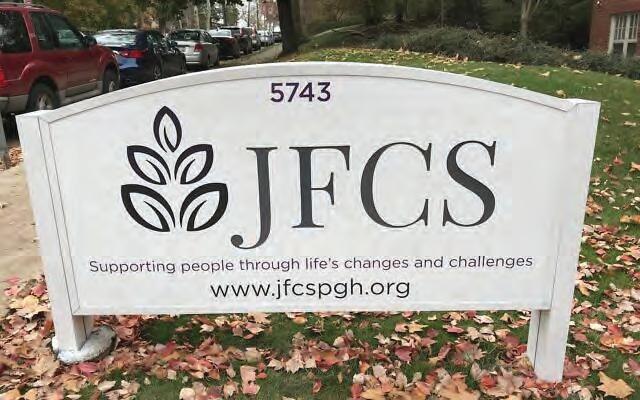
 By Justin Vellucci | Special to the Chronicle
By Justin Vellucci | Special to the Chronicle

InnovatePGH and JFCS Career Services are teaming with UPMC to give job seekers in Pittsburgh’s most underserved communities a chance to build a career in health care.
The groups are launching a cohort in mid-September to funnel Pittsburgh candidates into patient service representative positions with UPMC, according to Becky Johnson, director of JFCS Career Services.


The group fielded applications for the cohort — its third in two years — through Sept. 1, Johnson said. Jobs are based throughout southwestern Pennsylvania.
The only requirement for the program is a high school diploma, or GED, Johnson said. No paperwork is required to prove financial need. There are no age or ZIP code restrictions. And, no, you don’t have to be Jewish.

Have a criminal history? That’s not a problem, either, Johnson said.
“What we really wanted is a barrier-free application process,” Johnson said. “We try making it as easy as possible, and we try to be upfront.”
The Innovation District Skills Alliance program mirrors a model that succeeded in the Philadelphia area, Johnson said. The core of the IDSA program provides qualified job seekers
who have experienced challenges in the interview process — high school graduates with little or no job experience, people working the gig economy, people returning to the workforce after periods of absence — additional support to secure employment at UPMC.
Why underserved communities?

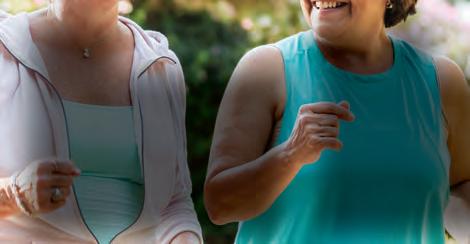



“Job seekers living in underserved communities face a disproportionately higher rate of challenges accessing economic, social, educational and health care opportunities,” JFCS spokesperson Allie Amoaye said. “Unfortunately, qualified job seekers struggle to access sustainable employment opportunities due to limited social capital, inadequate professional experience and challenging life experiences.”
“This program is exciting for Pittsburgh,” Johnson said. “It’s an opportunity for communities with barriers to access and entry into medical field jobs to have a direct pipeline into those jobs.
“It provides stability and benefits,” she added. “And it can provide upward mobility and opportunity in terms of their career trajectory. We’re excited to see how this continues to help these individuals and our community thrive.”
The program — dubbed the UPMC Patient Service Representative IDSA Cohort — will lead about eight to 10 participants through an accelerated three-week training program, job placement assistance and supportive services, Amoaye said. In addition to targeted job
training, individual career counseling and an inside look at the patient service representative role at UPMC, participants also receive a stipend, gift cards for expenses, a laptop and more.
Oliver Cunningham, a JFCS program facilitator for IDSA, started recruiting for the jobs program after the first cohort in autumn 2022. He’s used some social media but also has worked contacts at other agencies, building email lists and doing in-person and online presentations.
“Pittsburgh is a word-of-mouth city,” Cunningham said. “Getting into the community and really speaking to people” is important.
Cunningham, a former New Yorker who worked for six years in workforce development for the formerly incarcerated in New Orleans, admitted that many of the people who have applied for the UPMC cohort “have a little bit of experience in the medical field.”
“But that is not required,” he said.

He’s also seeing no age patterns.

“I have people who applied who are 18 and someone who’s 70,” Cunningham said.




Cunningham sees success for the budding program on several fronts: A jobs seeker gets a job, UPMC gets a hard-working employee and JFCS benefits from connecting the dots.
“It’s pretty much a win-win-win for us, the participants and UPMC,” he said. PJC









A federal judge in New York City dismissed a lawsuit against the multinational food company Unilever tied to Ben and Jerry’s 2021 announcement that it would stop selling ice cream in what it called “Occupied Palestinian Territory,” JTA.org reported.
Unilever is the ice cream maker’s parent company. The lawsuit, which was thrown out on Aug. 29, claimed Unilever misled American investors by not immediately sharing the news of the boycott with them.
The boycott, which sparked discussion across the Jewish world, is not in force: In December, following a separate, lengthy legal battle, Ben & Jerry’s independent board reached a settlement with Unilever that ensured the ice cream would continue to be sold across Israel and the West Bank.
The suit that was dismissed was brought last year by a police and fire pension fund in St. Clair Shores, a suburb of Detroit. The plaintiffs sought damages from the company due to a drop in Unilever stock price after the boycott announcement in July 2021.
Following the announcement, multiple state pension funds divested their funds from Unilever or otherwise decreased their business with the company or with Ben & Jerry’s. The lawsuit sought damages for people whose shares in the company fell after those divestments.
The makeup artist who styled Bradley Cooper as Leonard Bernstein has apologized for creating the prosthetic nose that some say perpetuates stereotypes about Jews, JTA.org reported.
Kazu Hiro said at a Venice International Film Festival press conference on Saturday that he was not expecting the swift backlash to early images of Cooper in character that surfaced last year and intensified earlier this month when the trailer for “Maestro,” a Bernstein biopic, was released.
“I feel sorry that I hurt some people’s feelings,” said Hiro, who has won two Oscars, including for his work transforming Gary Oldman into Winston Churchill for 2017’s “TheDarkest Hour.”
“My goal was and Bradley’s goal was to portray Lenny as authentic as possible,” Hiro said. “Lenny had a really iconic look that everybody knows — there’s so many pictures out there because he’s photogenic, too — such a great person and also inspired so many people.”
Both Bernstein’s family and the Anti-Defamation League defended Cooper, who also directed the film.
Iran bans weightlifter for life after he took a photo with an Israeli opponent Iran’s weightlifting federation banned one of its athletes for life after he shook hands and posed for a photo with an Israeli athlete at an international competition in Poland, JTA.org reported.
Mostafa Rajaei finished second in his category at the 2023 World Master Weightlifting
Sept. 11, 1921 — Moshav Nahalal is founded
Championships on Saturday. Rajaei, standing on the podium wrapped in an Iranian flag, shook hands and took a picture with Israeli Maksim Svirsky, who finished third.
“The weightlifting federation bans athlete Mostafa Rajaei for life from entering all sports facilities in the country and dismisses the head of the delegation for the competition, Hamid Salehinia,” Iran’s weightlifting federation said in a statement, according to Agence France-Presse.
Iran, whose leaders regularly call for violence against Israel, forbids its athletes from competing against Israelis, including at the Olympics. Iranian athletes have previously forfeited or cited medical complications in efforts to avoid facing against Israeli athletes.
NY congregation can evict tenants of historic Touro Synagogue, Rhode Island judge rules
A Rhode Island judge has ruled in favor of a historic New York City synagogue that is seeking to remove the leadership of the congregation that meets at another historic synagogue building — Newport’s famed Touro Synagogue, JTA.org reported.
The ruling, issued on Aug. 24, would evict the leadership of Congregation Jeshuat Israel, or CJI, which has been meeting at the Touro synagogue, America’s oldest, since the early 1900s.
Congregation Shearith Israel in New York City, also known as the Spanish and Portuguese Synagogue, owns the Touro building and has complained in recent years that CJI has failed to be a good steward of the site.
The two congregations have been in and out of court for at least a decade. CJI has been leasing the site for a symbolic $1 a year since
the early 1900s. Shearith Israel, the nation’s oldest Jewish congregation, refused in 2021 to renew CJI’s lease and ordered the congregation to vacate the premises by Feb. 21, 2023.
Superior Court Judge Maureen Keough said she could find no reason to rule in favor of the tenants but stayed the eviction until September.
First passenger flight from Saudi Arabia arrives in Israel after emergency landing
What appears to have been the first-ever passenger flight between Saudi Arabia and Israel has taken place — even though the two countries have not yet established diplomatic relations, JTA.org reported.

An Air Seychelles flight to Tel Aviv made an emergency landing on Aug. 28 in the port city of Jeddah, where passengers spent the night. The next day, they flew to Ben Gurion International Airport.
“I really appreciate the warm way in which the Saudi authorities treated the Israeli passengers,” Israeli Prime Minister Benjamin Netanyahu said in a statement. “I really appreciate the good neighborliness.”
The incident comes amid what are reported to be U.S.-brokered talks to establish ties between the two countries. Saudi Arabia would become the fifth Arab country to normalize relations with Israel in recent years, following the four deals known as the Abraham Accords that were struck in 2020.
Relations between the countries have been softening in recent years, and Saudi Arabia began allowing Israeli planes to pass through its airspace last year.
— Compiled by Andy Gotlieb
Items are provided by the Center for Israel Education (israeled.org), where you can find more details.
Sept. 8, 2010 — Tank designer Israel Tal dies
Moshav Nahalal, a new kind of agricultural settlement combining a kibbutz’s communal principles with private land ownership in a design of concentric circles, is founded in the Jezreel Valley between Haifa and Afula.
p Maj. Gen. Israel

Tal is best known for leading the committee that developed Israel’s Merkava tank.
Former armor commander Maj. Gen. Israel Tal, a renowned military strategist best known for leading the committee in 1970 that designed a nd developed the first Israeli-made tank, the Merkava (Chariot), dies at 85.
Sept. 9, 1993 — PLO, Israel recognize each other
Four days before the Palestine Liberation Organization and Israel sign the Oslo Accords at the White House, Yasser Arafat and Yitzhak Rabin exchange letters formally recognizing each other’s existence.
Sept. 10, 1956 — Archaeologist
Eilat Mazar is born
Eilat Mazar, a third-generation archaeologist, is born. Her best-known work involves excavations in Jerusalem’s City of David, including remnants of what she believes to be King David’s palace.
Sept. 12, 2009 — Israeli film wins Golden Lion
An Israeli film, “Lebanon,” wins the Golden Lion at the Venice International Film Festival for the first time. Written and directed by Samuel Maoz, the movie follows a tank brigade in the First Lebanon War.
Sept. 13, 1993 — PLO, Israel sign Oslo Accords
President Bill Clinton holds a White House signing ceremony for the Oslo Accords between Israel and the Palestine Liberation Organization. Israel’s Yitzhak Rabin and the PLO’s Yasser Arafat famously shake hands.
Sept. 14, 1948 — Palmach is integrated into IDF Prime Minister David Ben-Gurion announces after a meeting with Palmach leaders that the elite strike force is being dismantled as an independent unit and integrated into the Israel Defense Forces, part of a depoliticization of the military. PJC
p Yitzhak Rabin, as a Palmach commander, joins David Ben-Gurion and Yigal Allon on a tour of the Negev during the War of Independence.






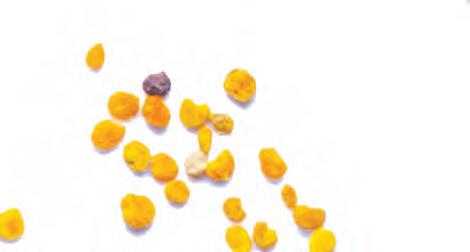

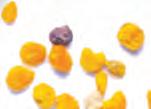













































The Jewish Association on Aging’s recent announcement that it will no longer maintain a kosher kitchen at Weinberg Terrace, its personal care facility on Bartlett Street, has touched a nerve in the community. While certified kosher food will still be available to those seniors who want it, it will be prepared off-site, 2.5 miles away at the JAA’s main campus, double-wrapped then delivered. The kitchen at Weinberg Terrace will no longer be under the supervision of the Vaad. There will be a separate dining area for those kosher residents who prefer not to dine with those eating non-kosher food.
This change may be offensive or demoralizing to some of the elders who chose Weinberg as their home based on its Jewish character, including the fact that it had a kosher kitchen.
We are troubled that some of those seniors who require a kosher diet — 20% of JAA residents, according to the organization’s internal survey — may feel “othered” by the new policy, eating pre-packaged meals while the majority dines on meals made in-house.
We fear this change in JAA policy will affect not only the current residents of Weinberg Terrace but also future generations
of Jewish seniors who want to live in a home with a kosher kitchen. We worry that some may choose facilities in other cities as a result, thus eroding the long-term viability
resident will be forced to leave because of an inability to pay. Something had to give.
We at the Chronicle understand the constraints of a Jewish nonprofit that
Jewishness of Jewish Pittsburgh thrive to ensure that it has the means to do so.
Last week, a petition was circulated calling for the JAA to delay the implementation of its new food policy until its leaders could meet with community members to discuss how to preserve the kosher character of Weinberg Terrace. It states, in part: “Any resolution ... can only come through respectful and open dialogue between all stakeholders. We request that the leadership of the JAA listen to the concerns of all of the stakeholders and consider alternative methods to address budget shortfalls.”
of Pittsburgh’s diverse Jewish community.
The news of the JAA’s impending dietary changes has frustrated, saddened and angered many Jewish Pittsburghers. While we agree in principle with those who maintain that a Jewish senior residence should serve kosher food exclusively, we were disheartened by the aggressive tone and misinformation posted by some community members on social media regarding this issue.
JAA leaders said they did not come to their decision lightly, and we trust that is true. Faced with rising costs and declining donations, they prioritized health care, security and benevolent care — ensuring that no
struggles to meet its mission in the face of community support that is declining or not keeping up with rising costs.
The bottom line is, if the Pittsburgh Jewish community wants to maintain its viability, its members and its foundations must support its Jewish institutions by utilizing them and by contributing to them financially.
When that support is lacking, those Jewish institutions — congregations, day schools, camps and early childhood centers, for example — will be forced to make hard decisions. Some will invariably be diminished, or perhaps fade away entirely.
It is up to those of us who wish to see the
We urge JAA leaders to take this plea to heart and engage in productive, transparent community discussions. We encourage the JAA to provide the community with more information about the cost differential between running a fully kosher kitchen and the hybrid option that has been proposed so that the community can work together productively and cohesively toward a satisfactory solution.
And we hope that the Pittsburgh Jewish community is willing to do its part by stepping up to the plate and offering the necessary support to help maintain a kosher kitchen at Weinberg Terrace. Community organizations need our help. And what better time than the High Holidays to extend it? PJC
Icame to work at the JCC on Sept. 1, greeting passersby from our membership and staff before heading to my office. I turned on my laptop and began tackling daily tasks with the sense of purpose that had defined my tenure for nearly a quarter of a century. Yet something was markedly different. For the first time in 9,000 days, I was no longer the JCC’s CEO.
While our executive transition was formalized at the JCC’s annual meeting the evening before, the process of leadership succession and the long-term strategic partnership between our lay and professional leadership to develop internal talent is something that I have begun to reflect upon with great satisfaction.
Succession planning is the defined approach to an inevitable transition of leadership. Its Jewish roots go back to biblical times with the transition of Moses and Joshua, two unique individuals with different assets to lead community. Moses played a pivotal role in the transition, elevating Joshua’s visibility and promoting his leadership qualities. But while internal leadership succession is well established within the private sector (where roughly 70% of CEO succession is groomed from within), intentional succession strategies have historically been far less established within the nonprofit sector, including Jewish institutions.
This began to change in 2014, when a
consortium of national Jewish foundations and executive leaders published the groundbreaking report “Leadership Pipelines Initiative.” It noted the sobering reality that upward of 75% of executives planned to leave their positions over the next five to seven years, with few organizations having any form of succession plan in place or established
those professionals we believed could further their leadership. When we recruited from the outside to fill key positions, these individuals were assessed and groomed for further growth. Such was the case when our now CEO, Jason Kunzman, was selected through a national search for the role of chief program officer in 2016. In that search, we prioritized candi-
less hierarchical approach to decision making. This evolution will certainly intensify in the coming months and years, with my unequivocal endorsement.
Ten years ago was a lonely time for me professionally. We prepared for the retirement of two long-tenured senior team members and saw additional management vulnerabilities. Executive colleagues in other communities would privately lament the increasing demands of their position and a widening gap between the performance expectations of their role and the capabilities of their management teams. Our board worried about the JCC’s “bench strength” and challenged me to focus on our talent base over the coming years. Well — that time has come.
program to groom executive talent within their organization. The emerging crisis was intensified as there were fewer experienced CEO candidates to potentially replace them. In short order, Leading Edge was founded, a groundbreaking organization designed as a central address for talent and culture in the Jewish sector.
The report was a wake-up call for me to acknowledge our internal vulnerability while recognizing the potential within our own workforce to formalize a strategy. In partnership with lay leadership and several key donors, we began a formal Talent Management program just as Leading Edge was being formed. We began assessing our internal talent pool and formalizing growth plans for
dates whom we believed had the aptitude and capacity over time to become the CEO. Since joining us, Jason’s enhanced internal responsibilities, increased public roles and ultimate selection as a Mandel Foundation Executive Leadership Program Fellow provided the kind of seasoning I could only have dreamt of when I was hired by the JCC in 1998.
Talent development cannot be limited to the CEO role. In an organization as diverse and complex as ours, we require a highly competent, skilled management team prepared to lead the scope of services for the JCC of today with the vision to plan and build for the JCC of tomorrow. Of our current management team, two-thirds have been promoted internally through our talent strategy accompanied by a
As I transition to a new role at my beloved JCC after a lengthy executive tenure, I am sanguine by a new CEO and management team that is “pound for pound” the highest performing group of professionals with whom I have ever worked. They have collectively carried our agency through some of the greatest challenges we have faced in our 128-year history and are poised to take our mission and impact to new heights. My passion for talent development will continue here in Pittsburgh and in my ongoing supplemental role at JCC Association of North America, where I plan to share our Pittsburgh experience and champion a strategic talent model for our field built far more on “we” than “me.” PJC
Brian Schreiber is the former CEO of the Jewish Community Center of Greater Pittsburgh and now serves as its chief external affairs officer and special advisor to the CEO.

In an organization as diverse and complex as ours, we require a highly competent, skilled management team prepared to lead the scope of services for the JCC of today with the vision to plan and build for the JCC of tomorrow.
If the Pittsburgh Jewish community wants to maintain its viability, its members and its foundations must support its Jewish institutions by utilizing them and by contributing to them financially.
Last week, the Chronicle asked its readers in an electronic poll the following question: “Is it appropriate for nonJewish actors to play prominent Jewish characters on stage and screen?” Of the 306 people who responded, 76% said yes; 9% said no; and 15% said it depends. Comments were submitted by 111 people. A few follow.
It’s called “acting” for a reason.
It’s about consistency. If the culture is “characters need to be played by people like them” (like modern Hollywood), then the answer is yes. If the answer is “the best actor should play the role” (like Broadway), then the answer is no. What’s upsetting is when Hollywood feels one way about some minorities but a different way about us. If it matters that Cleopatra was Greek but not that Leonard Bernstein was Jewish, that’s the offensive discrepancy.
15% It depends
9% No
76% Yes
Unless we want Jewish actors to be limited to only playing Jewish characters, we must be accepting of non-Jews portraying Jewish characters.
If I had to choose one subject for all Israeli schools to focus on this academic year, it would without a doubt be the acceptance of others out of an aspiration for unity.
It seems that nothing is more vital at this time than highlighting what unites us as a nation and removing that which separates us. I believe that this lesson, which is so relevant for all of Israeli society and not just the educational system, is the one that can bring about an important change at this most critical time.
Only such a complete and true sense of equality increases social cohesion, a sense of belonging and responsibility for one another. I am confident that our excellent educational system has the necessary tools to succeed in this task.
The start of a new academic year is an important opportunity to be proud of the achievements of the Israeli educational system. As president, I often visit Israeli schools and always walk away with a deep sense of appreciation for all the employees, who do holy work with dedication and a sense of mission to impact hundreds of students and shape our future.
When I see their desire to reach every student and promote excellence and how patient they are with the students who are
Only with official authorization by a Jewish liaison committee.
This is a no-brainer/non-issue, and the only thing offensive about “Jewface” is the term itself.
I believe we have become too sensitive to these issues. Enough already ...
I think the point of acting is to transform oneself into a different character. I am tired of all the nonsense about cultural appropriation.
I don’t have a problem as long as it’s done tastefully and with respect.
We are lucky to have someone of Helen Mirren’s talent to play Golda Meir.
As a Jew, in my heart I would immediately say no, but anyone who can portray a role
as it is meant to be portrayed deserves to be given the part.
Whenever possible, I prefer a Jewish actor be cast; however, there are certainly circumstances where that’s not the best choice.
Who else but Charlton Heston could have played Moses?
It is an excellent way to create an understanding of another’s world. Share the stories. PJC
— Compiled by Toby
TabachnickChronicle weekly poll question: How will you be attending or participating in High Holiday services this year? Go to pittsburghjewishchronicle.org to respond. PJC
I have spent most of my adult life as a volunteer, deeply immersed in the Jewish community of Pittsburgh. During this time, I have seen many difficult and divisive issues come and go. It is unreasonable to assume that any individual decision will be met with 100% unanimity, but in most cases, community members have been respectful and understanding of final outcomes. Having spent years on both the Jewish Community Center of Greater Pittsburgh and the Jewish Federation of Greater Pittsburgh boards (having chaired both organizations), I know firsthand how difficult it is to make hard decisions that affect members of our community. Whether it was opening the JCC on Shabbat, or helping to guide one of our agencies down a new path, every decision was made by well-meaning individuals with no personal agendas. The solutions were found by engaging the stakeholders and attempting to make the best fiscal and communal decisions.
In their op-ed “JAA remains committed to Jewish values, even during times of change” (Sept. 1), Lou Plung and Mary Anne Foley clearly laid out the facts that were behind the decision to change the kashrut status at Jewish Association on Aging. I assure you that no decision was made without extensive research and discussion among the JAA board. I find it highly offensive that individuals on social media have personally attacked board members of both JAA and the Federation. The issues that JAA has confronted are mostly due to lack of sufficient support over the years. Are any of the complainants donors to either organization? Have they sat on any boards, devoting hundreds of hours trying to decide what is best for the entire diverse Jewish community with limited financial resources? I pray that the temperature on this issue is dialed back, that people can have respectful dialogue about making our community a better place by acting in a constructive rather than destructive manner.
Meryl Ainsman PittsburghA Jewish News Syndicate article that recently appeared in the Pittsburgh Jewish Chronicle (“Fetterman, Lipstadt visit Tree of Life synagogue in Pittsburgh post-trial,” online, Sept. 1) erroneously reported that:
“Sen. John Fetterman (D-Pa.) and Deborah Lipstadt, special envoy to monitor and combat antisemitism, met on Tuesday at Tree of Life building with survivors of the attack and family members of the 11 Jewish worshippers who were shot and killed during prayer on Oct. 27, 2018.”
The article continues by quoting Fetterman’s Twitter:
“It was humbling, powerful and truly filled me with sadness to return to the Tree of Life synagogue this morning with the families of those killed in the tragic, antisemitic attack nearly five years ago.”
So how does one teach to strive for unity at a time when polarization and division endanger Israeli society? The ability to have an open dialogue in the education system — from kindergartens to high schools — plays a central role.
Educational institutions must be a place of safety, inclusion, and understanding for every student: A home that both allows them to express themselves most authentically and directly and accepts them without criticism and judgment.
struggling, I am filled with appreciation and admiration.
I am excited along with the students who are returning to their schools and hope that this academic year will bring with it an opportunity to learn and teach about unity – a lesson we need now more than ever. PJC
Isaac Herzog is president of Israel. This article, reprinted from JNS, was originally published by Israel Hayom.

The truth is that my family as well as several other victim-family members were not invited nor notified in any manner regarding this event or their possible desire to participate. I do not at all condone nor appreciate my deceased parents and family being exploited as political fodder in this purely political, photo-op public relations stunt that Fetterman (or his handlers) staged at the site of the tragedy nearly five years after the fact. However, the truth should be known that:
1. Many victim-families were not notified nor invited to this event.
2. Many victim-families do not condone nor appreciate their deceased loved ones and themselves being utilized as political fodder by any politician.
3. The tragedy of 10/27 should never be politicized in any manner, especially with falsehoods.
Marc Simon Washington, PennsylvaniaEducational institutions must be a place of safety, inclusion, and understanding for every student: A home that both allows them to express themselves most authentically and directly and accepts them without criticism and judgment.
Tree of Life: Continued from page 1
Rosen was tasked with learning a haftarah, which was “a big to-do,” she said.
Her meetings with Cantor Harry Silversmith often didn’t go well.
“[He] threw me out of my bas mitzvah lessons because I was never prepared,” Rosen recalled.
It wasn’t the only time she was tossed from class. During Hebrew school, she and a friend often hid beneath their teacher’s desk. When the teacher entered the room, Rosen and her classmate started singing “Hativkah,” Israel’s national anthem.
“She had no idea where we were, and I don’t know how that was,” Rosen said, “but when they found out, I was in trouble from that.”
Jill Beck, who celebrated her bat mitzvah at Tree of Life decades later, also shared some humorous stories.
As a teenager attending confirmation, Beck was supposed to be at the Squirrel Hill building by 8:30 a.m. on Sunday mornings.
“We negotiated,” the current attorney said. “We said, ‘We’ll be in your class but we need a 45-minute break.’”
After Tree of Life leadership acquiesced, Beck and her friends lawfully used the time in a profane way: They drove to Taco Bell.
“We wouldn’t open the food inside the building — because of kosher — so we ate tacos and burritos on the fire escape,” she said.
Howard Elson, a past president of the congregation, recalled several performances staged by the congregation.
With help from Emery Malachowski of the 10.27 Healing Partnership, Elson excerpted videos of the plays. At each break, Elson mentioned the names of people who danced,
Continued from page 1
through multiple days of services.”
The services will be both familiar and new to those who attend, Bisno said, explaining that there are no prayer books; instead, there will be a program he has created as a guide.
There is a $100 fee to attend both nights. Those interested in registering can do so at c4ic.org.
Kohenet Keshira haLev Fife said that Kesher Pittsburgh will have several opportunities for people to connect with the High Holidays and one another.
Rosh Hashanah day services will be held outdoors and include a lot of music.
“There’s latitude in the service to consider what tunes we are using, how much are we singing, how are we engaging with the Torah portion,” Fife noted.
On the second day of Rosh Hashanah, there will be an opportunity to experience tashlich in kayaks on the water and participate in an embodied movement practice focusing on the theme of release and letting go.
Kol Nidre will include an immersive musical experience that includes a chanting segment.
Yom Kippur will begin with a second embodied movement practice before a Shacharit service, followed by mediations and chanting. There will then be an opportunity to join the Center for Loving Kindness’ High Holidays of Hope before a healing Mincha service preceding Neilah and Havdalah.
This is the eighth year of programming at Kesher Pittsburgh, and each year the number of participants grows, she said.
sang and performed in shows, including “Irvita,” “A Night in the Ukraine,” “Dare to Dream” and “Tree of Life’s Tree of Laughs.” Recordings and related materials, he said, were going to the Heinz History Center’s Rauh Jewish Archives, which along with the Holocaust Center of Pittsburgh, helped organize the Aug. 29 program.
Like Elson, fellow past president Lynette Lederman stood at the front of the room and told nearly 40 attendees about her time at Tree of Life’s helm.
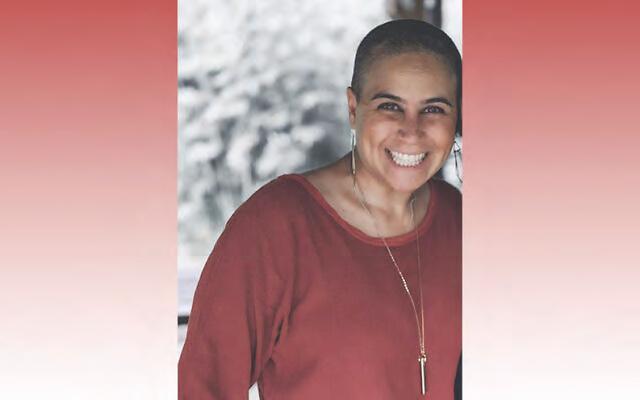
“I was the second female president in 125 years,” she said. “Hilda Kreimer was the first female president, from 1982 to 1984; and I came along in 2000, over 20 years later — and that would tell you what a patriarchy it was, and that women were really not accepted in the management of synagogues across the country.”
Lederman recalled how even after becoming president several people were unhappy about her position.
They believed, “she could be president of the Sisterhood, but a woman couldn’t be president
of the congregation, and they let me know it,” Lederman said.
“It was a really rough time, until I got through it, but my real touchstone was that when I was on the bima every Friday night and Saturday morning, for bar mitzvahs and anything that I had to do, there was a cadre of women in the congregation — Ruth Ann Klein, Rose Mallinger, Sylvia [Moidel], Sally Rock, Marcia Solomon — and they would be nodding to me. They would be giving me affirmation that I was supposed to be up there. And truthfully, I never, ever forgot them. And all of the leadership work I’ve done over the years, I never forgot them. I see them in my mind’s eye.”
As the evening unfolded, and more stories followed, attendees mingled and enjoyed refreshments. Participants moved between plastic folding chairs in the room’s center to quiet corners for chatting.
There was a shiva-like aura to the evening, Feinstein noted.
“It’s not necessarily shiva to any one person or to any one thing, but shiva to an era that no
longer is there. And it doesn’t mean that the next thing that’s coming won’t be beautiful, it just means that we’re finishing up a chapter,” she said.
Robin Friedman echoed the sentiment when recalling her 59-year membership to Tree of Life.
“Several years back, before 10/27, when we were considering our next moves as a congregation, someone said that it didn’t really matter where we are because the building is only bricks and mortar,” she said. “While that is partially true — and it’s the people that make the congregation regardless of where we are housed — that building at Wilkins and Shady will always be more than bricks and mortar to me. For reasons way beyond our control, we will have a new building and we will make new memories, and we will carry in the hearts the memories of the people who helped shape us as a congregation.”
Before exiting Wightman School, Andrea Wedner, a survivor of the 2018 shooting, stood beside members of her family. She and her brother Alan Mallinger looked at a black-and-white photograph of their mother, Rose Mallinger, seated beside other Tree of Life stalwarts.

“A lot of the people from many years ago, they’re just always with us,” Wedner said. “They’re going to be with us. It makes the rebuild of the synagogue and the new building even more special and important. That’s why we have to do this — to carry on their legacy.” PJC
Adam Reinherz can be reached at areinherz@pittsburghjewishchronicle.org.
This story is part of ongoing coverage of the Pittsburgh synagogue shooting trial and its aftermath by the Pittsburgh Jewish Chronicle and the Pittsburgh Union Progress.
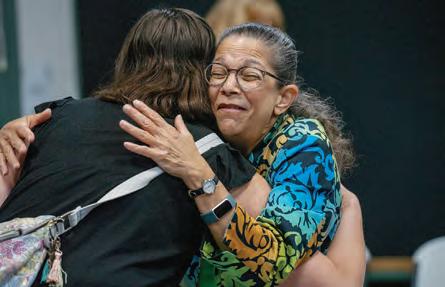
community leader Leon Ford and former Pittsburgh Police Chief Scott Schubert for a conversation about moving beyond past offenses and building relationships. Eleven years ago, Ford was shot five times by the Pittsburgh police in a case of mistaken identity. He was paralyzed from the waist down. He and Schubert have since nurtured a relationship.
More information about the High Holidays of Hope can be found at jccpgh.org/event/
For those looking to connect with the fruits associated with the holiday, Repair the World has n opportunity on Tuesday, Sept. 12, at 5:30 p.m. at its Sheridan Avenue Orchard and Garden.
“I think people not only want to mark the holidays in ways that feel significant and important but also ways that are relevant and resonant and connective,” Fife said. “They give folks a sense of being part of something.”
More information on Kesher Pittsburgh’s High Holiday events can be found at kesher-
or the Jewish Community Center of Greater Pittsburgh’s Center for Loving Kindness, the
“Jewish wisdom teaches us that on Rosh Hashanah, if you want to impact your fate in the Book of Life, there are three things you can do,” said Rabbi Ron Symons, senior director of Jewish life at the JCC and founding director of the Center for Loving Kindness. “One is you can pray. You can repent. And the third is, you can do acts of justice.”
Symons said this year the center will focus on that last opportunity with its High Holidays of Hope.
partners. Each kit will also contain words of kindness from the people packing them.
People can also donate gift cards from Giant Eagle, Target or Aldi in any amount, or shop in person or online from the center’s Amazon wish list.
The center is partnering with several other Jewish community organizations as well as the Squirrel Hill Urban Coalition and the Carnegie Library of Pittsburgh.
“The bottom line,” Symons said, “is we want people to come and do something on Rosh Hashanah that’s going to make a difference in people’s lives.”
On Yom Kippur, a time when folks are focused on reflection and aspirations, Symons said, the center will be joined by Pittsburgh
“We’re going to harvest apples that are grown on-site and enjoy them with some local honey and cider,” said Repair the World Program Manager Annie Dunn. “Our senior fellow Em [Duhamel] is bringing their shofar to play and will be leading the group in a conversation around the Jewish New Year and rituals.”
Whether it’s an outdoor service, volunteer opportunity or new worship experience, Symons said that he thinks it is important to offer alternative High Holiday programs.
“We know that not everyone goes to synagogue on the High Holidays,” he said. “We also know that for some going to synagogue, they have a yearning for something else as well. The work we do has the possibility of being the primary experience, for some a supplemental experience, to how it is that they celebrate the High Holidays.” PJC
David Rullo can be reached at drullo@ pittsburghjewishchronicle.org.




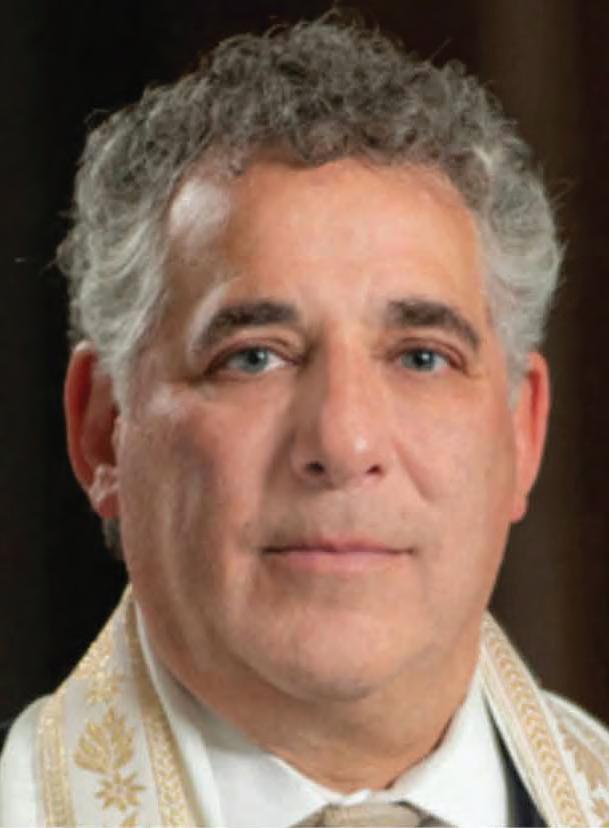
While many recipes for Rosh Hashanah and the chagim call for sweet sauces and marinades, I enjoy a good sweet-and-sour option on the holiday table.
Pomegranate syrup is a perfect base for such a dish because it’s flavorful and tart and is also a seasonal favorite for the holiday. The syrup is fragrant when cooked and faintly exotic when mixed with honey, fresh ginger and garlic, but it’s not so overpowering that it will scare off people who are used to simpler food. You can use regular honey or silan, which is a date honey, for this recipe, too. The flavors meld together beautifully without overpowering each other.
This recipe is great when you are pressed for time before the holidays because it tastes beautiful and can be prepared quickly. This year, Rosh Hashanah falls on Shabbat, so this easy-to-make dish is a wonderful thing to have at your fingertips. It takes about 20 minutes on the stove followed by 15-20 minutes in the oven.
You can make this a day ahead and warm it before serving, but it’s simple to make for a fresh second night or daytime meal. The marinade reduces to make a beautiful sauce to ladle over each piece of chicken when plating.
Ingredients
3 pounds dark meat chicken, bone-in. You can use drumsticks, thighs, quarters or any combination
Coarse kosher salt to season
For the marinade:
½ cup pomegranate syrup (concentrate, not juice)
⅓ cup honey or silan (date syrup)
1 teaspoon Aleppo pepper or ¼ teaspoon of cayenne pepper

1½ teaspoons fresh grated ginger or ½ teaspoon ground ginger

3-4 cloves fresh garlic, minced
1 tablespoon olive oil
Cooking and garnish:
¼ cup avocado or vegetable oil for browning the chicken

Pomegranate arils for garnish
Salt and pepper to taste
Instructions
Sprinkle the raw chicken with kosher salt on both sides.
Mix the pomegranate syrup, honey, pepper, ginger, garlic and olive oil in a large bowl with a whisk, then add the chicken to the marinade. Use a fork to turn the pieces of chicken so that they are well coated.
Cover the bowl with plastic wrap and marinate for at least 6 hours. When I have the time, I marinate the chicken overnight, cook it in the morning and rewarm it before the meal. Be sure to turn the chicken over in the marinade a few times right before you cook it.
Preheat the oven to 350 F with the wire rack in the middle.
Place a sauté pan over medium-high heat and add ¼ cup of oil to the pan to heat. Reserve the marinade.
Use tongs or a fork to add the chicken, top side down, to the hot pan and brown it for 10 minutes. You should hear a sizzle when you add the chicken to the pan, but if the oil seems too hot, reduce the heat to medium.
If you’re using chicken quarters, you may need to brown the chicken for a few extra minutes since they are larger pieces. Turn the chicken and brown the bottom for 5 more minutes.
Add the marinade to the pan and allow it to come to a soft boil, then reduce the heat to simmer. Cook the chicken in the marinade for 2-3 minutes. The honey caramelizes
beautifully, but be careful not to burn it.
Use tongs to remove the chicken to a baking dish, reduce the heat on the pan and allow the marinade to reduce for 2-3 minutes more, whisking occasionally.
Pour the marinade over the chicken and bake it uncovered for 15-20 minutes or until the chicken reaches a minimum temperature of 165 F. I get a little anxious with poultry so I prefer to cook it to 180 F. If you’re making this ahead of time, and will warm it later, take the chicken out when it reaches 165 F. This will ensure that the chicken does not dry out when reheated.
To reheat, cover the dish with foil and warm it for 20 minutes or so.
There is a nice amount of reduced sauce for serving, but this is not a “sauce chicken” so don’t leave this in the oven for an hour to warm — it will dry out and the honey in the sauce will burn. I suggest serving this with rice, which collects the beautiful flavor of the sauce nicely.
You can garnish this dish with slivered almonds, scallions or parsley for a little added color and texture. Sprinkle it with pomegranate arils to add a special touch to your holiday table.
Wishing you and your loved ones a healthy, happy and abundant year ahead.
Enjoy and bless your hands! PJC
More information here: jccpgh.org/event/high-holidays or scan the QR Code below
JCC Squirrel Hill Levinson Hall
Saturday, September 16 3-4:15 pm
JCC South Hills Social Hall
Sunday, September 17 3-4:15 pm

Deliver care kits later in the week to our community partners serving Pittsburghers experiencing housing and food insecurity. More details will follow once you register.
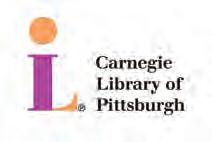
Reconciliation: Pittsburgh Community Leader Leon Ford and Former Pittsburgh Police Chief Scott Schubert in Conversation about Moving Beyond Past Offenses and Building Relationships

Monday, September 25 • 3-4:15 pm
•

11 years ago, Leon Ford was shot five �mes by the Pi�sburgh Police. A case of mistaken iden�ty that paralyzed him from the waist down, Ford’s en�re life was altered in an instant. A�er years of reckoning and learning to transform pain and anger into healing, Ford and Schubert have nurtured a loving rela�onship commi�ed to reconcilia�on.
Join us to witness their conversa�on and for a contemporary Yizkor (Memorial) Service for all of our losses.
More information on both programs HERE

Cara Ray Rackoff, daughter of Melissa and Peter Rackoff, will become a bat mitzvah at Rodef Shalom Congregation on Saturday, Sept. 9, 2023. Cara is the older sister of Eliza and the granddaughter of Gerry and Barry Brause of Larchmont, New York, and Nancy and Bill Rackoff of Palm Beach Gardens, Florida, and Pittsburgh. Cara is a seventhgrade student at Falk Laboratory School. She enjoys skiing (on snow and water), swimming with the JCC Sailfish Swim Team, playing basketball, baking, traveling and spending time with her family and friends. In connection with her bat mitzvah, Cara has organized, planned and run a bake sale, lemonade stand and used dress sale to benefit Steamboat Stars, an adaptive skiing program for youth and adults with disabilities.
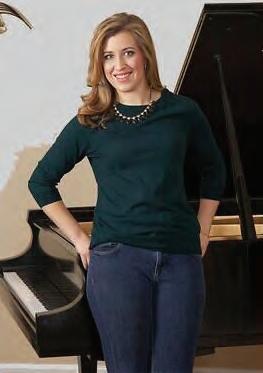
Dana and Marty Izenson of Foster City, California, announce the engagement of their daughter Julia Lauren to Rigved Deshpande. Julia is the granddaughter of Sondra and Richard Glasser and the late Edward Izenson, and Joel Hausman and Marilyn Hausman. Julia and Rigved met at Hillsdale High School in San Mateo, California, and are both currently living in the Bay Area. Julia is a graduate of UC Davis and works as an engineer in the biotech industry, while Rigved is a graduate of Carnegie Mellon University and works as a software developer in the video games industry. PJC

During this contemplative month of Elul that leads up to the High Holy Days, we turn inward and consider our relationship with G-d, with others and with ourselves. In this week’s double Torah portion, Nitzavim-Vayeilech, Moses gives his final of four speeches in Deuteronomy as the Israelites prepare to enter the land of Israel without him, and Joshua rises up as the new leader of the Israelites.




In preparing for this transfer of power, Moses instructs the Israelites on how to obey God’s commandments (Deuteronomy 30:11-14).
Moses tells the Israelites “v’lo rachokah hi,” that observing God’s commandments is not far from us, it is not beyond us.
times in this parsha alone.

So often we ask ourselves, “When will things get better? When will my life turn around? When will I find happiness?” We think that once we feel successful, we know it all, we feel settled in our personal and professional lives, then we will finally feel whole and complete. Parshat Nitzavim is a reminder that happiness, goodness and groundedness are not as far away as they may seem; v’lo rachokah hi — it is not beyond us or out of reach.
Even when we feel hopeless, the reality is that happiness, goodness and groundedness are available to each of us hayom — today. Sometimes in our lowest moments, we doubt ourselves or question what is happening in the world around us. In these moments, obeying G-d’s mitzvot can feel like a distant ideal. It is upon us to turn our hearts and minds toward G-d, and find gratitude for the good of today, even if it’s something as small as the joy of your children’s first day
“ Lo bashamayim hi, ” it is not in the heavens, so you don’t need to send someone among you to go search for it.
“Mayayver layam hi,” and it is not beyond the sea, so you don’t need to send someone out across the sea to bring it to you.
“Ki karov aleicha,” Torah is always close to you, in your hearts.

During this spiritual time when so many of us are searching and seeking more meaning in our lives, this reminder that Torah and our connection with G-d are not out of reach, but rather within each of our hearts, feels calming and reassuring.
This parsha also reminds us that it is never too late to seek a life imbued with Torah and mitzvot, in whatever ways that manifest in our personal observance; we can start today — hayom.
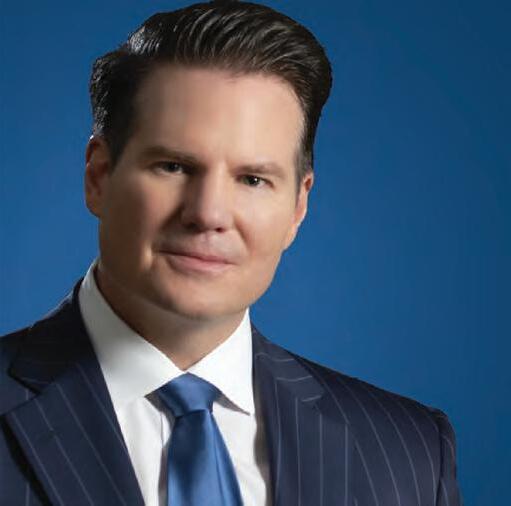

The word hayom, “today,” appears six

of school or spending quality time with a dear friend. Hayom

Leading up to these Days of Awe, I invite you to consider the ways in which we seek G-d within ourselves in this season. Where are we fragile? Where are we strong? What practices will support us on our spiritual journeys? Who will help us discover the goodness and G-dliness that already dwells within each of us?
As we prepare to enter 5784, I wish each of you a year of goodness, gladness and peace. May you find these small moments of light in each day — hayom. Shabbat Shalom, and an early Shana Tova! PJC
It is upon us to turn our hearts and minds toward G-d, and find gratitude for the good of today, even if it’s something as small as the joy of your children’s first day of school or spending quality time with a dear friend. Hayom.














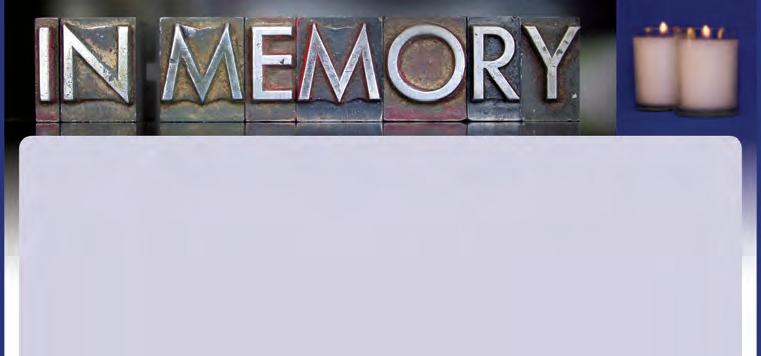
AZEN: In loving memory of Helen Azen (Mimi). Helen Azen, lovingly known as “Mimi” by her family and “Aunt Helen” by countless others, passed away peacefully at the remarkable age of 107, leaving behind a legacy of love, resilience and unwavering positivity. Her infectious smile warmed the hearts of all who had the privilege of knowing her. Born in Pittsburgh, raised in Chicago, she returned to Pittsburgh and soon married Harry Azen to become part of the large Azen family of Azen’s Furs & Fashions. Helen was predeceased by her devoted husband, Harry, and loving daughter Evelyn Azen Gottlieb. She is survived by her caring daughter, Linda, and four adoring grandchildren: Lauren, Jill, Ethan and Jordan, as well as nine great-grandchildren who brought immense joy to her heart: Ben, Itai, Aviya, Maya, Hana, Jacques, Gavin, Lisa and Max. Throughout her lifetime, Helen nurtured her family with boundless love and wisdom. Her home was a haven of warmth and hospitality, where cherished memories were created around the dinner table. Her positive outlook on life, even in the face of adversity, was a guiding light for her loved ones, instilling in them the importance of hope, kindness and the enduring power of a smile. Services were held at Ralph Schugar Chapel, Inc. Interment B’Nai Israel Cemetery. Arrangements entrusted to Ralph Schugar Chapel, Inc., family owned and operated. schugar.com
CAPLAN: Robert J. Caplan, 81, of Churchill, passed away peacefully surrounded by family on Sept. 3, 2023. Beloved husband of the late Carol B. Caplan; loving father of Alan (Karen) Caplan, Eric (Marci) Caplan and Marla L. (Victor) Caplan; grandfather of Ian, Carly, Sage, Siera and many granddogs and cats; brother of Ronald Caplan, Joel (Margie) Caplan and the late Jeffrey (Michelle) Caplan; son of the late Harry and Lillian C aplan. He also was loved by many nieces, nephews, extended family and friends. A graveside service was held at the Betty Rosenberg Cemetery on Tuesday, Sept. 5, 2023. The family would like to give a special thank you to the Gallagher Home Health Care and the staff at Forbes Regional Hospital for their special care. In lieu of flowers, memorial contributions may be made to the Parkway Jewish Center, parkwayjewishcenter.org/. Professional services by D’Alessandro Funeral Home & Crematory Ltd., Lawrenceville, dalessandroltd.com.
COHEN: Suzanne “Grandma Sue” Cohen, age 91, passed peacefully on Aug. 24, 2023, surrounded by her family. Beloved mother of Bruce (Miriam) Cohen and Mark (Ilanit) Cohen. Cherished grandmother of Michal (Isaac) Manaster, Dahlia (Jeremy) Simons and Rachel Cohen. Doting great-grandmother to a very loving crew of eight. Proud owner of Pebbles, Cricket, Daisy and Dexter. Admired and longtime resident of Riverview Towers. Always refined, with a contagious laugh, nothing made her happier than her family. She never missed a birthday, anniversary or any other special occasion. She will be greatly missed by all who knew her.
EVANS: Arthur Evans Jr., on Monday, Aug. 28, 2023. Beloved husband of Betty G. Evans. Loving father of Arthur J. Evans (Leslie), Michael E. Evans (Abbie) and the late Laura J. Evans. Brother of the late Edward (late Betsy) Evans. Adored Papa of Peter and Laila Evans, and Nathaniel and Ari Evans. Also survived by many loving cousins. Art especially loved the outdoors, hiking, camping, climbing, downhill and cross-country skiing. He was an avid outdoorsman. Art grew up in Pittsburgh and attended Shady Side Academy before attending MIT and being drafted into the Army, where he was stationed in Alaska. He and his adoring wife, Betty, eloped before he was stationed there. After his service in the Army, Art attended Carnegie Tech, now Carnegie Mellon University, and pursued study in mathematics and then computer science before the college had even established a computer science degree. He was one of the first computer science graduates there and among the first four or five on staff at CMU in the 1950s working on the development of programming languages and compilers. After obtaining his doctorate at Carnegie Tech he pursued a lifetime career in computer software, stretching from the days computers were made with vacuum tubes and input was done with punched cards, to the days of modern high-level languages. He was at the forefront of the development of modern programming languages, assisting in the development of the Ada language for the Department of Defense. He was awarded as an Ada Distinguished reviewer. Art was well known as “The Art” of computer programming. He taught at CMU and then MIT when he brought his family from Pittsburgh to West Newton, Massachusetts, in the early 1960s, lived in Carlisle, Massachusetts, in the ‘70s and ‘80s, returning to Pittsburgh in the ’80s where he continued his career and independent consulting. He also served a sabbatical at the University of Utah and as a visiting professor at his son’s college computer classes! Art’s contribution and ingenuity were even referenced in several of his son’s computer science books in the 1980s. Art was an extraordinarily strong caretaker of his family,





Please see Obituaries, page 20

Jewish Association on Aging gratefully acknowledges contributions from the following: A gift from ... In memory of...


Anonymous David Nathaniel Racusin



Anonymous .Thelma B Newman Racusin
Anonymous .Florence R Stevenson
Parke Americus .Leo M Americus
Danny Anolik Paul Anolik
Frani & Milo Averbach Morris L Schachter
Regina Bardin Ida Bardin
Hyla & Sandor Caplan .Louis Sadowsky
Lois Crone Richard Crone
Frank & Barbara DeLuce .Harry Doltis
Frank & Barbara DeLuce .Sandor Shaer
Susan Goldstein Pauline Marcus

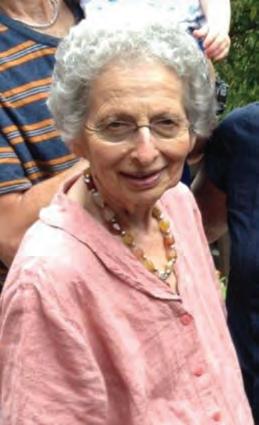
Cheryl Kalson .Morris Kalson
Natalie Kleinberg Harry Dell
Linda Levine Leonard Levine
Linda Levine .Albert Rosenfeld
Jean Metzger .Justine Herzog Becker
Maxine & Larry Myer .Lena Myer
Linda Rattner Nunn Jack Rattner
Howard Perlman Ruth I Perlman
Jerry & Ina Silver .Joseph Mirow
Joyce Weinstein Levinson .Dr Larry A Levinson
Edris C Weis .Mildred Tannenbaum

Contact the Development department at 412-586-2690 or development@jaapgh.org for
Sunday September 10: Bess Abrams, Hanna Balkman, Abraham Bennett, Sara Cukerbaum, Israel Feldman, Eva S Friedman, Max Garfinkel, Selma Halle, Sadie Jacobs, Helen Markowitz, Theodore Miller, Jane Moravitz, Lt Albert Rosenfeld, Albert Sleisenger
Monday September 11: Leo Morris Americus, Rose Berger, Nathan Drucker, Emma Faigen, Isaac Horn, Paul Kaufman, Emil Joseph Klein, Sarah Levenson, Joseph Mirow, Benjamin Newberg, Abraham Ohringer, Samuel Patkin, Leonard Rosen, Leonard B Rosen, David B Saltsburg, Maurice Stern, Lawrence Norman Tunkle, Gertrude Wanetick, Edmund Wechsler, Ben Weiner
Tuesday September 12: Bertram B Biggard, Beckie C Cadison, Harold Benjamin Cramer, Harry Doltis, Louis Gordon, Jr , Murray F Hoffman, David Samuel Katz, Louise Mendelson, Emma Mersky, Lena Myer, Roy Ruttenberg, Harry Silberman, Belle Simon, Sylvia F Stern
Wednesday September 13: Robert Amper, Ida Bardin, Anna Bernstein, Joseph Morris Fisher, Rose E Litman, Morris Merwitzer, Manuel Howard Neft, Reah Ogun, Rose Orr, Frances Pasekoff, Tybie Poser, Saul Seegman, Abe Sieff, Dr Larry A Levinson, Himie Simon, Abe Siniakin, Lester H Strauss, Freda Weiss
Thursday September 14: Annie Lazier Barovsky, Samuel Caplan, Alexander Cohen, Paula Cohen, Richard Crone, Fannie Dubin, Mathilda Horn, Lillian Koss, Lena Levine, Morris Marks, Evelyn Pearlstein, Sam Ruben, Sally Schaffler, Dr Stanley M Taxay, Edward Weinberger, Abraham Zwibel
Friday September 15: Maurice Robert Colker, Benjamin F Cooper, Irving Farbstein, Jack H Goldstone, Solomon Lehman, Max Levine, Jesse Levy, Beulah Lobl, Philip Seltzer, Minnie C Serrins, Isadore Simon, Sheldon N Topp, Herman Louis Turk
Saturday September 16: Anna Chinn, Anne Betty Frand, Louis Frischman, Henry Goldberg, Lena Roscow Goldberg, Sorali E Lubarsky, Marilyn Hope Manela, Jack N Pearlman, Sandor Shaer, Samuel Silverblatt, Karl Solomon, David Terner
Obituaries:
Continued from page 19
well prepared for all things. He valued education and gave back generously to all things that mattered to him. He cared deeply for his daughter, two sons, grandchildren and friends. He and his wife, Betty, were lovingly devoted to each other through nearly 70 years of marriage. Graveside service and interment were held at B’Nai Israel Cemetery, Penn Hills. Contributions may be made to UPMC Alzheimer Disease Research Center, Attention: Leslie Dunn, MPH, ADRC Administrator, University of Pittsburgh, UPMC Montefiore, Four West 200 Lothrop St., Pittsburgh, PA 15213-2582. Arrangements entrusted to Ralph Schugar Chapel, Inc., family owned and operated. schugar.com
GALTZ: Charles Galtz. It is with heavy hearts that we announce the passing of our beloved uncle, Charles Galtz, on Tuesday, Aug. 22, 2023, at the age of 96. He leaves behind a legacy of love, kindness and cherished memories that will forever live on in the hearts of those who knew him. “Charlie,” as he was known by his family and friends, is survived by his adoring and devoted nieces, Carol E. Levy and Louise D. Levy, and his nephew, Steven N. Levy. He was a loving greatuncle to his seven grand-nieces and -nephews, Chloe, Camryn, Chace, Cassidy, Carly, David and Bradley, who were his pride and joy. Charlie was the beloved son of the late Louis and Eva Galtz, the adored brother of the late Lois G. Levy, and brother-in-law of the late Dr. Marshall S. Levy. Throughout his life, Charlie touched the hearts of everyone with his kindness, selflessness, generosity, gentle happy nature, and unwavering love and devotion to his family. After serving as a Naval seaman in the U.S. Navy from 1945-1947, with honorable discharge, he will be remembered for having worked tirelessly as the president of his family’s department store on Penn Avenue, American Wholesale, that he helped grow over the years. An avid golfer throughout his life, he enjoyed golfing with friends and family, especially at the Green Oaks Country Club, where he will truly be missed. Graveside service and interment were held at West View Cemetery of Rodef Shalom Congregation. Arrangements entrusted to Ralph Schugar Chapel, Inc., family owned and operated. schugar.com PJC
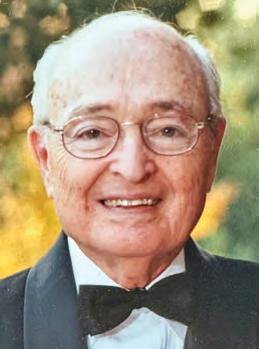

The Pittsburgh Jewish Chronicle is seeking a dynamic, creative and innovative sales professional with proven success. You will have myriad opportunities to earn an income that increases with every sale you make.

• Fiercely competitive
• Excellent listening & communication skills
• Achieve monthly, quarterly and annual sales goals
• Consistently maintaining high level of activity in the field (cold calls, prospecting, custom needs assessment, proposals, closing sales)
• Exhibits confidence and professionalism in presentation skills
• Ability to set next steps and achieve defined goals with prospects and expectations for closing business
• Strong interpersonal and organizational skills paramount to success
• Comfortable with technology and understanding of digital and social media REQUIREMENTS
• Print, media, digital and/or event experience preferred

• 2-3 years direct outside sales experience
• Bachelor’s Degree from 4-year college or university
• Strong understanding of the digital ecosystem
• Organized, multi-tasker who thrives in a fast-paced environment
• Incredible business acumen with an entrepreneurial spirit to own a territory, business and clients
• Strong work ethic is a must
• Positive attitude and team players only please
We value a culture of collaboration and professional and personal growth for all team members.
If you feel strongly that you could contribute to our team, and thrive in a fun, fast-paced atmosphere, we encourage you to submit your cover letter and resume to jobs@pittsburghjewishchronicle.org. Please include “Account Executive” in the subject line. No phone calls. The Pittsburgh Jewish Chronicle is an Equal Opportunity Employer.
Smith-Rosenthal Team

Jason A. Smith & Caryn Rosenthal

Jason: 412-969-2930 | Caryn: 412-389-1695
Jasonasmith@howardhanna.com
Carynrosenthal@howardhanna.com

5501 Baum Blvd. Pittsburgh PA 15232 Shadyside Office | 412-361-4000

5125 Fifth Ave. 2 & 3 Bedrooms
Corner of Fifth and Wilkins Spacious
1500-2250 square feet


”Finest in Shadyside”
412-661-4456
www.kaminrealty.kamin.com


Sherri Mayer, Realtor Squirrel Hill Office


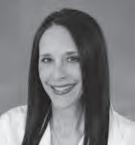



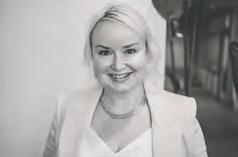
C: 412-760-0412
O: 412-421-9121x225
sherrimayer@howardhanna.com
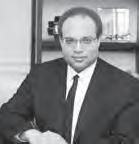
HowardHanna.com


Squirrel Hill. Charming Spanish Colonial architecture. 4 bds 2.5 ba, 8 rooms, A/C, patio yard, 2 car garage. Unique design with stucco, hardwood floors, stained glass, wrought iron works throughout.

Inquiries: 6681kinsmanroad@gmail.com
SHADYSIDE • $550,000
New listing! Unique 2+ bedroom single family in the heart of Shadyside. Close to restaurants and shopping plus public parking. Great court yard for entertaining. Large 2 car garage.
EDGEWOOD • $429000 - PENDING
First time o ered! Four bedroom cozy home in Regent Square . Charming and move-in ready. Close to shopping and restaurants. Don’t miss this special residence!

POINT BREEZE • $665,000 - PENDING

First time o ered! Meticulous, elegant 4 bedroom 3 bath home with wonderful architectural details. Close to Frick Park, Mellon Park, Bakery Square, Shadyside, and Squirrel Hill. Lovely yardand 2 car garage. Special Home.
GREENFIELD • $250,000 - PENDING
758 Melbourne St
4 Bedroom 2 bath home with central air, Renewal by Andersen windows and Owens Corning roof. Extra storage on first and very convenient location.
JILL and MARK PORTLAND RE/MAX REALTY BROKERS 412.521.1000 EXT. 200 412.496.5600 JILL | 412.480.3110 MARK
It’s such a simple food, yet many home cooks struggle with making fluffy steamed rice. While it may not be difficult to cook one cup of rice on the stovetop, it can be harder to get good results when making larger batches.
My recipe for oven-steamed rice is a lifesaver. You will get consistent results regardless of the amount that you’re making — and you need not worry about scorched pans, gloppy messes or hard rice kernels.
The best part is that you put the rice in the oven, set the timer and forget about it.
This is sure to become a go-to recipe in your collection for weeknight dinners and for holiday crowds.
Here is the formula so you can make the amount you need and get tasty, flavorful rice again and again.
Formula:
1 cup basmati rice

2 cups boiling water
1 teaspoon sea salt
1 teaspoon olive oil
That seems simple, right? It truly is! If I’m having 10-12 people for a meal, I will make 3 cups of rice: so, 3 cups of rice, 6 cups of
boiling water, 3 teaspoons of sea salt and 3 teaspoons of olive oil. You can double, triple or quadruple this recipe easily.
There are a few tricks to get the best results.
First, use basmati rice because it never fails. Rinse the rice in a strainer under cool water for about a minute before cooking. Rinsing rice gets rid of the extra starch that can make rice gloppy.
After rinsing, place the rice into a baking dish, and measure out and add the salt and olive oil. For one cup of rice, use an 8-inch-by-8-inch pan. For 2 cups of rice, a 9-inch-by-13-inch glass dish works well. When making more than 3 cups at a time, I’ve had great luck with disposable aluminum half pans. As a rule of thumb, the water should not rise more than halfway up the side of the pan. The rice needs room to expand while cooking, and there needs to be
Before adding the boiling water, place a sheet pan or tray under the baking dish — especially if you’re using an aluminum pan. This will give the dish stability and save you from possible messes or burns.
Be sure that the water is just boiled, right out of the kettle. Measure the boiling hot water and pour it over the rice, stir and cover the baking dish with a double layer of foil. Instead of using two separate pieces of foil, cut one large piece and fold it in half. It helps if the piece of foil is on the larger side so that it comes at least halfway down the side of the pan when sealed.
Cover the baking dish and secure the foil around the edges by pinching it around the top and sides. The double layer is strong and stiff, so it creates a nice bond around the pan and keeps in the steam.
It’s important when cooking rice not to peek, lift the foil or stir it while it’s cooking.
Preheat the oven to 425 F and bake for 25 minutes.
Remove the tray from the oven and let it rest covered for 5 minutes, then uncover it and fluff the rice with a fork.
You can serve the rice immediately or you can cover it and warm it in the oven later.
This is also a nice way to cook rice and meat simultaneously because the rice tray can be on the bottom rack in the oven and the entrée can cook on the rack above it.
While my rice recipe is simple, you can get creative with add-ins.
You can add a pinch of saffron to the pan of rice before baking it and get a beautiful yellow saffron rice for your meal. You can add ¼ cup of broken vermicelli noodles per 1 cup of rice and get rice with vermicelli. You can caramelize onions or sauté mushrooms to mix in or serve over the top of the rice.
You can also plump dried raisins, barberries, currants or diced dried apricots in hot water and add them to the cooked rice. Toasted nuts will also make a beautiful garnish.
This dish can be made plain or fancy but, believe me, the plain version is a crowdpleaser on its own.
Enjoy and bless your hands! PJC
Friday, September 15
Friday, September 15
7:45 PM Erev Rosh HaShanah & Shabbat Evening Service
7:45 PM Erev Rosh HaShanah & Shabbat Evening Service
Monday, September 25
Monday, September 25
1:30 PM Beit Midrash
1:30 PM Beit Midrash
4 PM Minchah Afternoon Service
4 PM Minchah Afternoon Service
5:15 PM Yizkor and N’ilah Service
5:15 PM Yizkor and N’ilah Service
Visit TempleSinaiPGH.org to order your Card of Admission for High Holy Day Community & Tot Services or contact Danie Oberman at (412) 421-9715 ext. 121 or Danie@TempleSinaiPGH.org.
Visit TempleSinaiPGH.org to order your Card of Admission for High Holy Day Community & Tot Services or contact Danie Oberman at (412) 421-9715 ext. 121 or Danie@TempleSinaiPGH.org.
Sunday, September 17
Sunday, September 17 10 AM Rosh HaShanah 2nd Day Morning Service


10 AM Rosh HaShanah 2nd Day Morning Service
Break Fast (a light snack to break your fast) follows N’ilah
Break Fast (a light snack to break your fast) follows N’ilah
*Donation requested. For security reasons, registration is required for all services.
Looking for an informal, inviting way to teach your little ones about High Holy Days? Join Cantor David Reinwald and Rabbi Daniel Fellman for a fun, active service of stories, singing, and dancing for families with children ages 0–5.
Looking for an informal, inviting way to teach your little ones about High Holy Days? Join Cantor David Reinwald and Rabbi Daniel Fellman for a fun, active service of stories, singing, and dancing for families with children ages 0–5.
Erev Rosh HaShanah: Kol Nidre:
Erev Rosh HaShanah: Kol Nidre:
Friday, Sept. 15, 5:15 PM Sunday, Sept. 24, 5:15 PM (Snacks & Fun start at 5 PM) (Snacks & Fun start at 5 PM)
Friday, Sept. 15, 5:15 PM Sunday, Sept. 24, 5:15 PM
(Snacks & Fun start at 5 PM) (Snacks & Fun start at 5 PM)
Tot Program with Danie Oberman, Saturday, Sept. 16, 8:15 AM Join Danie for fun holiday activities for children ages 0–5.
Tot Program with Danie Oberman, Saturday, Sept. 16, 8:15 AM Join Danie for fun holiday activities for children ages 0–5.
Visit TempleSinaiPGH.org to order your Card of Admission for High Holy Day Community & Tot Services or contact Danie Oberman at (412) 421-9715 ext. 121 or Danie@TempleSinaiPGH.org.
Visit TempleSinaiPGH.org to order your Card of Admission for High Holy Day Community & Tot Services or contact Danie Oberman at (412) 421-9715 ext. 121 or Danie@TempleSinaiPGH.org.
5505 Forbes Avenue Pittsburgh, PA 15217 (412) 421-9715
5505 Forbes Avenue Pittsburgh, PA 15217 (412) 421-9715
TempleSinaiPGH.org
TempleSinaiPGH.org
Friday, September 15, 6 PM
Friday, September 15, 6 PM
Enjoy a relaxing catered dinner with us before Erev Rosh HaShanah Service to start off a sweet new year. No cooking. No cleaning up. No hurrying to get to service on time.
Enjoy a relaxing catered dinner with us before Erev Rosh HaShanah Service to start off a sweet new year. No cooking. No cleaning up. No hurrying to get to service on time.
The menu includes:
The menu includes:
• Matzah ball soup
• Matzah ball soup
• Slow-braised beef brisket with onions, apples, & pan gravy
• Slow-braised beef brisket with onions, apples, & pan gravy
• Kosher chicken scallopini with lemon, capers, crimini mushrooms, & spinach
• Kosher chicken scallopini with lemon, capers, crimini mushrooms, & spinach
• Sweet peppers stuffed with quinoa & roasted vegetables
• Sweet peppers stuffed with quinoa & roasted vegetables
• Summer greens with beets, honey crisp apples, & honey-lemon vinaigrette
• Summer greens with beets, honey crisp apples, & honey-lemon vinaigrette
• Couscous with roasted vegetables & pomegranate molasses
• Couscous with roasted vegetables & pomegranate molasses
• Roasted maple carrots tzimmes with golden raisins
• Roasted maple carrots tzimmes with golden raisins
• Roasted creamer potatoes with Brussels sprouts
• Roasted creamer potatoes with Brussels sprouts
• Butternut squash-brown sugar cake with cinnamon ice cream
• Butternut squash-brown sugar cake with cinnamon ice cream
Cost: $29 per person (BYOB)/$10 per child (ages 4–12)/ FREE for kids 3 and under (seating is limited so register early)
Cost: $29 per person (BYOB)/$10 per child (ages 4–12)/ FREE for kids 3 and under (seating is limited so register early)
Register online by 5 PM on Tuesday, Sept. 12 at: TempleSinaiPGH.org/programs-events
Register online by 5 PM on Tuesday, Sept. 12 at: TempleSinaiPGH.org/programs-events
The future is now Lev Shropshire gets ready for his first day at Community Day School.


As Yeshiva Schools of Pittsburgh began the year, members of one family paused for a great photo.


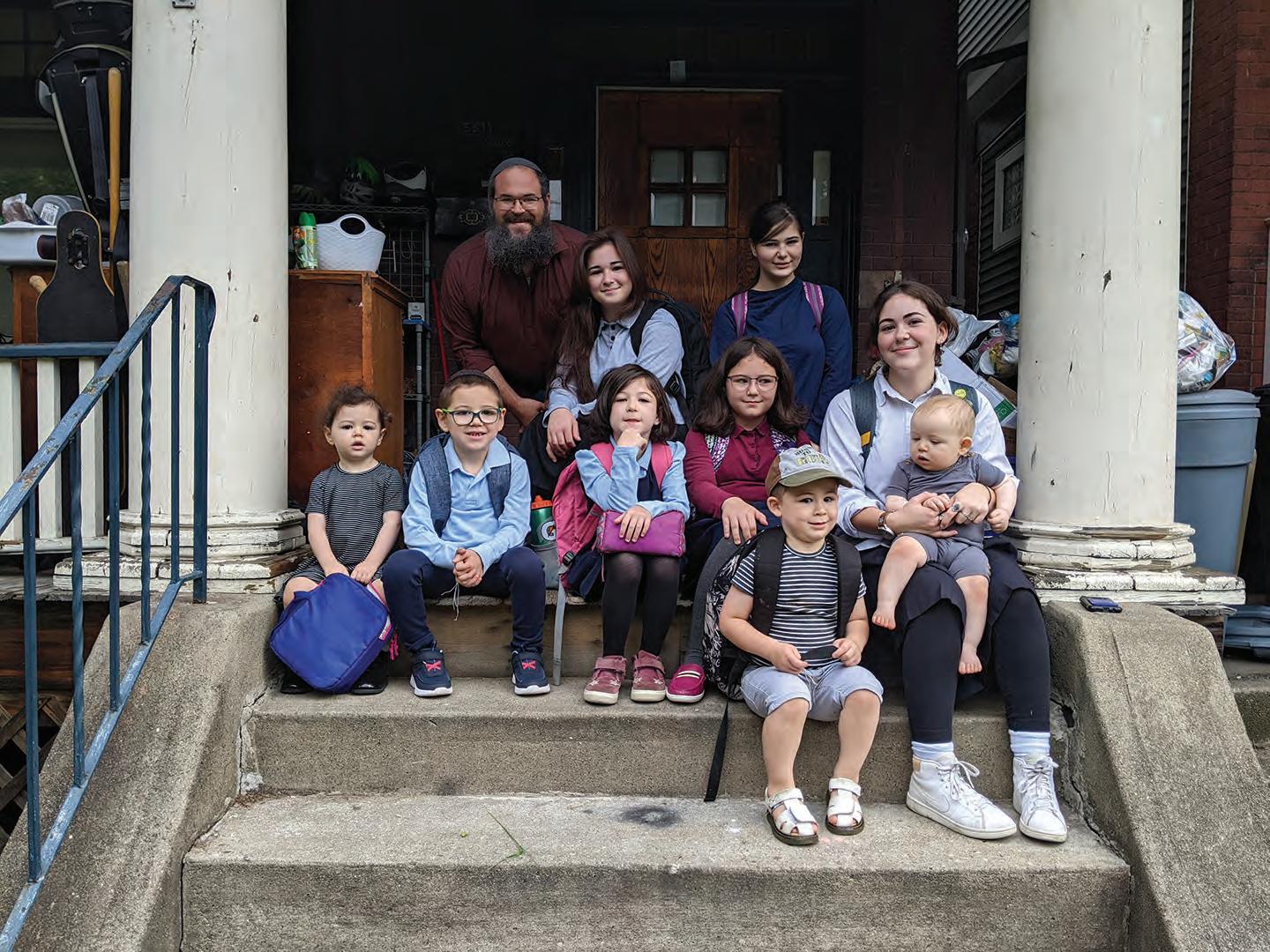
Temple David is a regular haunt for Shinshinim. In years past, the young Israeli ambassadors have helped the Monroeville congregation learn about Israel, Jewish culture and what it means to represent a country while still being a teen. Last week, Lidor Lubman, one of the new Shinshinim, got a chance to meet Temple David’s Rabbi Barbara Symons.
Emma Kaufmann Camp Friends and Alumni Network welcomed more than 75 friends, alumni, former staffers and community members to EKC for a day of connecting and fun. Participants reminisced about EKC, Emma Farm, Laurel Y and Lynwood.
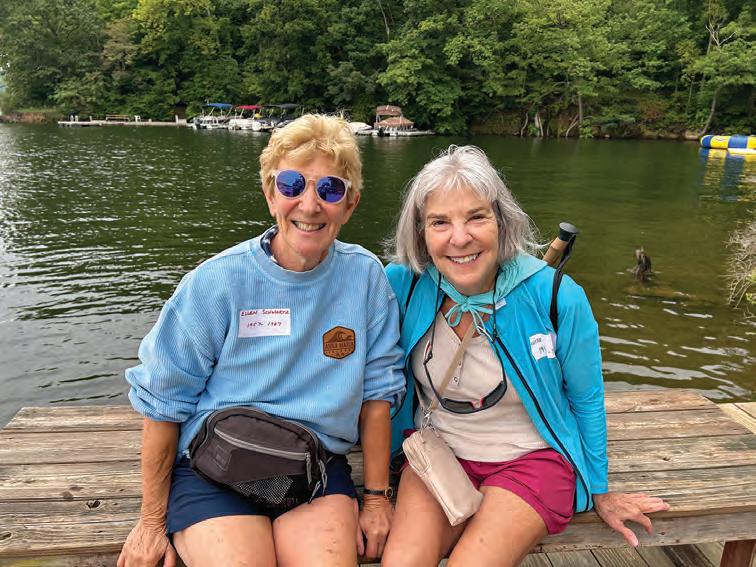


With Gefsky Community Scholar Rabbi Danny Schiff
Ethics & Crossroads

25 Sessions • ZOOM
SEP. 20, 2023–MAY 15, 2024
The God Class
10 Sessions • Rodef Shalom

SEP. 27–DEC. 6, 2023
Torah 2
25 Sessions • ZOOM
OCT. 9, 2023–MAY 13, 2024
Modern Jewish Philosophy
7 Sessions • ZOOM
OCT. 16–DEC. 4, 2023
The Jewish Calendar
4 Sessions • ZOOM
OCT. 24–NOV. 14, 2023

The Values We Hold Dear Brunch • JCC Squirell Hill
NOV. 5, 2023
The Israeli Political System

4 Sessions • ZOOM
NOV. 28–DEC. 19, 2023
Beginnings
4 Sessions • ZOOM
JAN. 10–31, 2024
QUESTIONS? Contact Cheryl Johnson at cjohnson@jfedpgh.org or 412-681-8000.
Continuing Legal Education 2023 Series • 8:30-10:45 AM on ZOOM*
How Jewish Law Approaches Sport



SEP. 21, 2023
The Nuremberg Laws Led to Kristallnacht


NOV. 9, 2023
Usury: Paying Interest on Loans in Jewish Law

JAN. 25, 2024
The Legal Dimensions of Shabbat



MAR. 28, 2024
Kedoshim
*In Person: Rodef Shalom

MAY 9, 2024
Risk-Taking: How Much Danger
Does Jewish Law Permit?
JUN. 27, 2024
QUESTIONS? Contact Patti Dziekan at pdziekan@jfedpgh.org or 412-992-5221.
Classes are generously supported by the Elaine Belle Krasik Fund for Adult Education Full inclusion is a core value of Jewish Pittsburgh. The Jewish Federation welcomes invitees of all abilities, backgrounds, races, religious affiliations, sexual orientations and gender identities. The cost of taking a course is never a barrier to participation. If price is an issue, or if you need accommodation for a disability, please contact Cheryl Johnson at cjohnson@jfedpgh.org or 412-681-8000 so that we can make the course accessible for you.
jewishpgh.org/explore/federation-learning